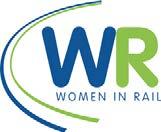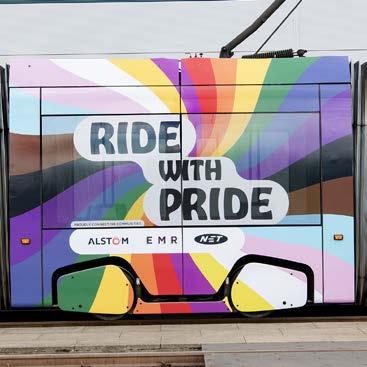
















As we reflect on the past year’s developments within the rail sector, we recognise that creating an inclusive, diverse and equitable industry requires the combined efforts of every stakeholder. The work of the EDI Charter for Rail Working Group has shown that meaningful change happens when we collaborate across organisational boundaries and share a common vision for progress.
The work undertaken by our respective organisations –shaping policy and championing women in the rail industry – has been a key driver in this progress. Together, we are proud to share the foreword for this annual report, which highlights the strides that the EDI Charter signatories have made in the past year, as well as the challenges which remain. We hope this foreword provides an insight into our continued commitment that everyone, regardless of background, can thrive in the rail industry.
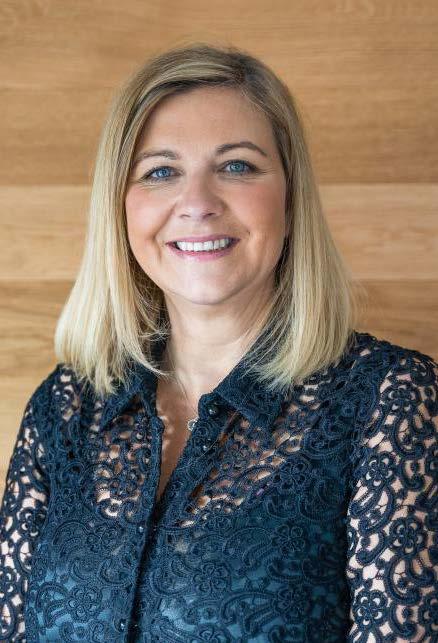

In my role as Policy Director, I have seen firsthand how policy can be a powerful tool in shaping the future of our industry. Over the past year, we have seen the industry made significant headway in embedding EDI principles across the rail sector. This progress has been achieved through partnerships, collaborative dialogue, and a steadfast commitment from organisations that understand the value of a diverse and inclusive workforce. I am proud of the work carried out by signatories of the Charter, and the EDI Charter Working Group over the last year.
I am also delighted that the RIA Trailblazers events have continued their success, attracting over 100 people to a reception in London every year to celebrate a dynamic and diverse industry. Our keynote speaker in 2024, Dr Mark McBride-Wright, is the founder of EqualEngineering and has done great work to improve inclusivity for LGBTQ+ people in engineering disciplines.
Looking forward, our priorities as RIA and the EDI Charter will be to build on this work and focus on long-term solutions that are agile and adaptable. This will ensure that we continue to build an industry where diversity is not just encouraged, but truly celebrated.
As Chair of an organisation dedicated to advancing opportunities for women in the rail industry, I am both proud and energised by the progress we’ve seen in the past year. The challenges facing women in the rail sector are well documented, from underrepresentation to unequal pay and limited leadership opportunities. However, thanks to the concerted efforts of many in the rail industry, we are starting to see meaningful change that goes beyond surface-level initiatives.
Our mentoring scheme, which pairs women at various career stages with experienced industry leaders, has once again been a resounding success. The scheme not only provides the mentees with essential career guidance and networking opportunities, but also helps to foster a sense of belonging in an industry that has historically been maledominated.
Whilst we are encouraged by the progress made over 2024, we know that the journey towards full gender equality in the rail industry is ongoing. There is still a need for increased representation of women in leadership roles, as well as in technical and operational positions. Through continued collaboration, we will remain focused on creating pathways for women at all levels of the industry to succeed. Our new 3-year business plan sets out our ambitious plans and is underpinned by our mission to remain “unapologetic in our pursuit of gender equity” across the industry.
We believe that the work the EDI Charter for Rail Working Group has done this year has laid a strong foundation for the future. However, we are under no illusion that the task is complete. There is more to be done, and it is only through sustained effort, collaboration, and accountability that we will continue to see progress.
Please join us in pushing for an industry where everyone – regardless of gender, race, ability or background – feels valued, respected, and empowered to contribute. Our vision for the future of rail is one where diversity is seen as a strength, and inclusion is woven into the very fabric of our operations. We are confident that together, we will achieve this vision.
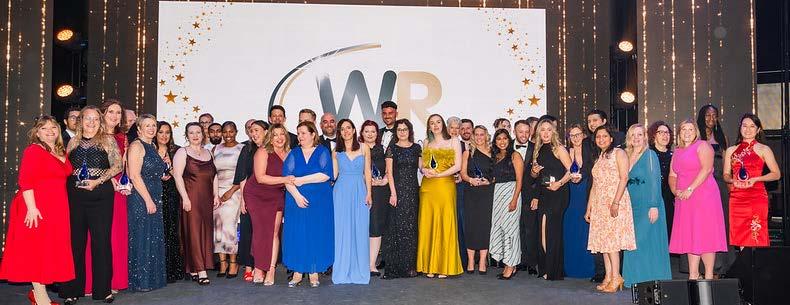
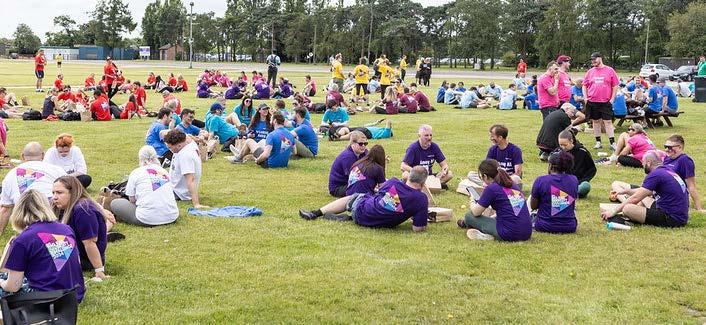

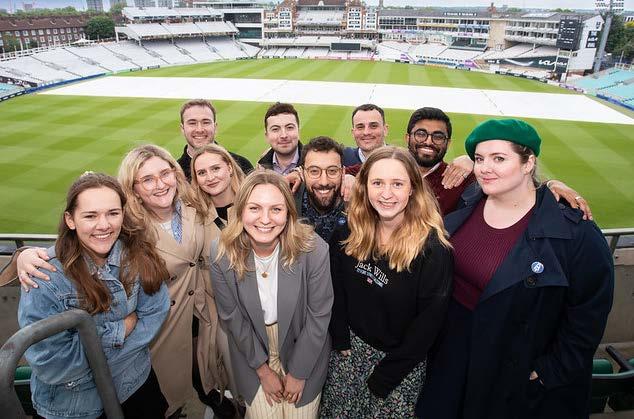
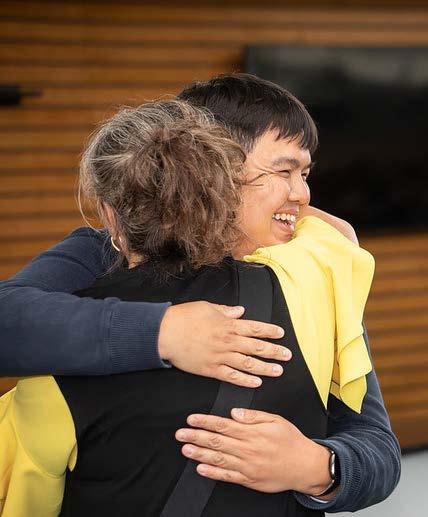
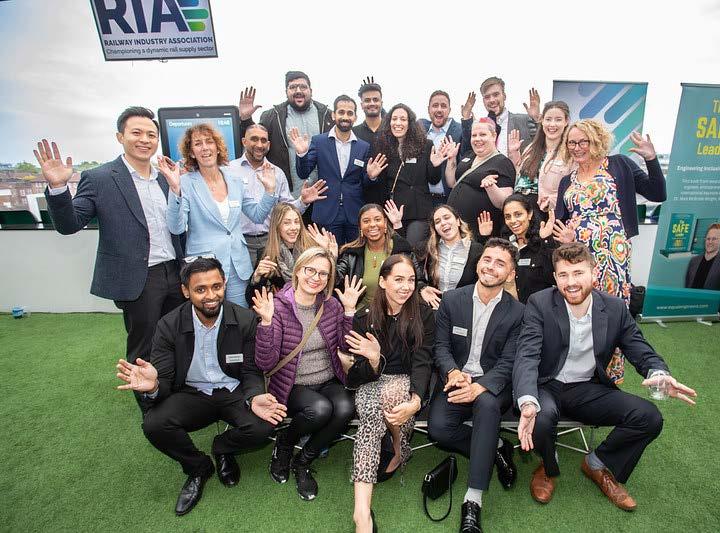
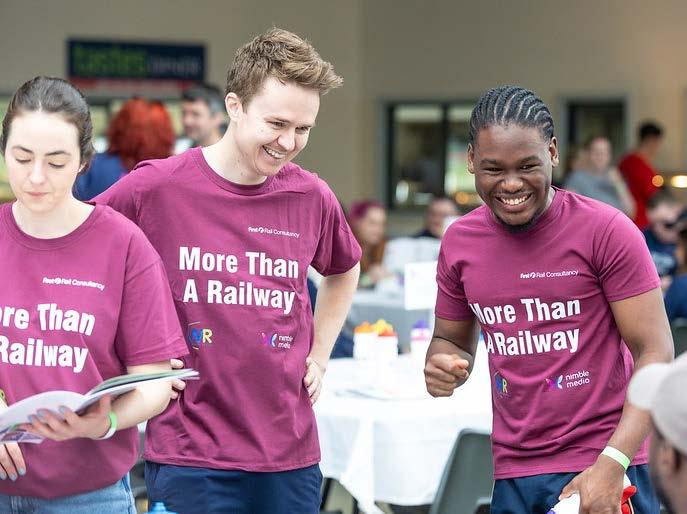


Hello, and welcome to this year’s Annual report for the Equality, Diversity and Inclusion Charter for Rail. This is my last foreword as Chair, so vice-chair Ben Evans and I have come together to create a joint introduction.
This report is a true celebration, and showcases a fantastic variety of best practices across the rail industry. Once again it inspires, enthuses and engages us, and we hope as readers, you feel the same way. This report is a yearly pause, a reflection, a chance to look at the great examples from other companies, celebrates the successes of your own organisation and ask the question: this time next year, what do I want to be saying about my own contribution, and that of my business, to advancing equality, diversity and inclusion in our industry?
What makes a community inclusive and what can we learn for the rail industry?
Both Ben and myself, play active roles in a range of social and professional communities. From photography club, to the ska punk scene, we thought about what makes a community truly inclusive and what lessons can be learnt for our own EDI Journey.
There are things that inclusive communities have in common, things that could easily translate to our Rail EDI Charter, and the wider industry. We drew out three characteristics that we can already see in the railway industry and in this report. By focusing on these three things as motivators for EDI, together we can make the rail industry a better place for us all.
1. A common passion and a shared love: It is the common shared passion that binds a community which is filled with different people. Likewise the railway may represent different things to those of us who work in the industry. You’ve probably heard people say that ‘once you’re in the railway, you never leave’. Connecting together over a passion to make the railways more inclusive and welcoming gives us a shared goal that everyone benefits from.
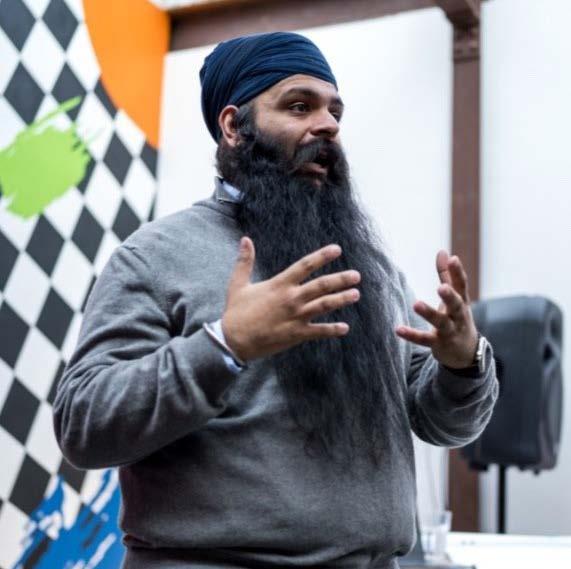
2. Talking the talk and walking the walk: Sometimes, just being accepting of others isn’t enough, they have to truly believe it to feel properly included in a community. Our words and actions are so important. Regardless of colour, caste or creed some communities become hives of diversity. No attention is paid to the background, experience, characteristics of those joining – rather its the taking part that counts. Can you imagine a railway that embodies the same values? A railway that does not discriminate based on years of rail experience, generations of railway people or ability to blend in. This is the railway that we, and so many other collaborative groups are trying to achieve. Just by opening up this annual report, you are already showing a willingness to come along on this journey, and for that, we thank you.
3. Celebrating achievements and adopting a zerotolerance approach: This can be a really difficult one. When the lead singer of a band stops on stage to deal with reports of homophobic and misogynistic behaviour by telling the perpetrators where the door is (well, in words that can’t be printed here) that really sets the tone for the community. This is where we think we can be better, both in calling out poor behaviours (which doesn’t have to be confrontational) and shining a light on the right ones. We also need to be comfortable in accepting feedback when we perhaps unintentionally speak or act in a way that could be better. Industry leaders, like lead singers, have a critical role to play in what they say from the stage!
So, what do you think? Do you agree with our thoughts on the three things that make a community or an industry diverse, equal and inclusive? Have we missed anything? We welcome you to be part of the conversation and to help evolve our industry to a place where the best practice you see in this report becomes just the way we do things around here.

RINC is a new working group and community with big plans for the industry.
By shifting the emphasis from ‘neurodiversity to neuroinclusion’, Graham Candy of AtkinsRéalis talks values, aspirations and how they hope to make a difference to thousands.

“I am delighted to be the inaugural chair of RINC; I bring experience in leadership roles across several different sectors, including rail.
Enabling greater collaboration in our sector creates a unique opportunity to support current and future employees as well as supporting a more inclusive rail network for passengers.
As someone with a son and nephew diagnosed with two different neurodivergent conditions, I am very aware of the challenges that public transport can present to individuals. I am equally aware of the great potential that comes with enabling neurodiverse talent in the workplace.
This is an exciting time for RINC, albeit within a challenging landscape. But our goal is clear – empower the industry to realise a neuroinclusive rail industry where everyone can thrive.”
Our mission
Make rail more inclusive for neurodivergent employees and the travelling public through:
Champion and celebration –promote good practice and share the successes of neuroinclusion, our community and beyond. Advocating for change – make the case for industry change, encourage and support organisations in their change journeys, and offer mentoring to leaders.
• Education and knowledge sharing – collating and signposting information to support neuroinclusion, including resources on many neurodevelopmental conditions.
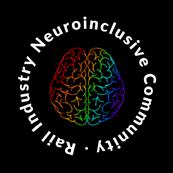
Why is RINC important to rail?
In the rail industry, a neuroinclusive workforce is truly intersectional, with the benefits impacting everyone –whether they realise it or not! Neuroinclusion isn’t just a good business strategy; it’s a source of unique talents and perspectives essential for innovation.
Valuing neurodifference allows us to harness the full spectrum of problem-solving capabilities and creativity that come with diversity of thought.
Fostering dynamic, adaptable environments where everyone can thrive works towards bridging the critical skills gap, which is crucial for navigating the complexities of modern rail networks.
Diversity enriches the industry, making it more inclusive and supportive for everyone involved, from engineers and operators to administrative staff; in turn promoting growth and loyalty.
Embracing neuroinclusion as standard will improve customer experience. Enhancing our ability to deliver high-quality service and improvements to our passengers, driving the rail industry forward.
Insights from the inside
Emma Dymond, CEO, Motion Rail (SME)
“In the UK rail industry, we face complex challenges every day, and it’s the people behind the work who make all the difference. By welcoming neurodivergent individuals into our team, we have so much more to gain than just a wider range of skills—we gain new perspectives, creative approaches, and a deeper understanding of each other.

Supporting ‘Small to Medium Sized Enterprises’ (SMEs) – encourage resource sharing among different organisations and drive change by celebrating the agility of SMEs.
Connecting and collaboration – be a networking hub, connecting people and organisations and avoiding duplication of effort or resources.
“Every person here brings something unique to the table, we have built a stronger, more compassionate team where everyone feels valued and where the best ideas, no matter where they come from, can truly shine.”
Aadil Panchbhaya, Apprentice, Hitachi Rail
“At school, they called me a troublemaker because I would talk too much. But now, that passion for communication helps my colleagues and clients to understand complex issues and build solutions together. It feels good to be understood and for my differences to add value”.
Our mission can’t succeed without you and your experiences driving real change. Help us to build a more inclusive railway by shifting the focus from ‘neurodiversity to neuroinclusion’.
Follow us on LinkedIn for updates and how you can get involved: https://www.linkedin.com/company/neuroinclusioninrail/
What do we do?
RUI is an Equity, Diversity and Inclusion (EDI) Community of Practice created in 2021 that unites people across the rail industry on a common mission: to create a simpler, better and more inclusive railway. Our Co-Chairs are Apeksha Naik and Odis Palmer, Industry Inclusion and Belonging Leads at GBRTT. We have 3 Co -Sponsors – Alex Hynes, Director General, Department for Transport; Karen Lewis, Group HRD, DOHL; Navleen Kalra, Director of Inclusion and Transformation, Network Rail
How we achieve it?
Through alliances with individuals and organisations across and beyond the rail industry who are passionate about making our sector more diverse, equitable and inclusive.
We actively work with the industry to understand our EDI maturity and work on what needs to be better. We also deliver programmes that help shift our culture and working practices in the right direction.
Who is involved?
From TOCs, FOCs, supply chain to DfT and Network Rail - RUI touches every corner of rail. Our 330 members span over 90 organisations across and outside the sector from all grade groups within the industry and experts external to rail
Why is RUI important?
We always strive to meet the needs of our customers, colleagues and communities. We need an industry that can walk in the shoes of our users and drive change that meets everyone’s needs. Our people are really important to us, and we want to continue to collaborate together to make our culture more inclusive.
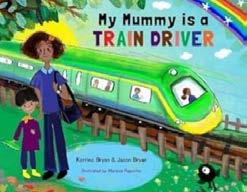


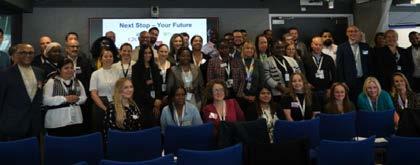
Rail Unites for Inclusion members
































































Working together on Inclusion




















ERR was founded 2 years ago with the aspiration to give railway industry colleagues from all ethnicities and races a voice and that same space and forum that other protected characteristics already have in place such as Women in Rail, Muslims in Rail, Young Rail Professionals already. The founder Lorraine has spent time doing her due diligence and research having meetings with colleagues across the rail industry and confirmed that this space lacks integration across the industry. The simple mission is to champion ethnicity and race diversity within the UK rail industry, fostering an inclusive and equitable environment for all with further aims of being able to celebrate and amplify the contributions of underrepresented communities, promote dialogue, and inspire positive transformation. Through research, advocacy, and collaborative initiatives, they are striving to remove barriers, empower individuals, and shape a rail industry that serves as a model of diversity and inclusion. They want to collaborate to create a future where everyone, regardless of their ethnicity or race, has equal opportunities and representation within the UK rail sector.
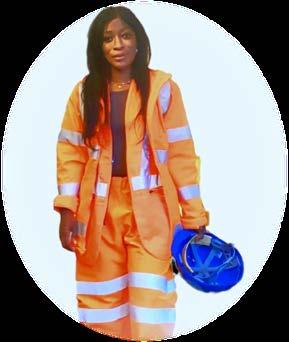

Lorraine Mhonyera has since been recognised in the RailStaff Awards 2023 and whilst didn’t win was highly commended in the EDI category. Having previously collaborated with Network Rail and GBRTT and other industry names with events. She has identified areas where colleagues need further support – including mentoring/ coaching/ethnicity pay gap/ understanding the stats across the industry and how that can support colleagues as a starter.
Having ran a couple of test listening workshops, she’s eager to carry on the momentum and is looking for volunteers that believe in raising voices and educating in order to take Ethnicity and Race in Rail to the next step. If you are interested to finding out more – please find the LinkedIn page (16) Ethnicity and Race in Rail: Overview | LinkedIn or email info@ ethnicityandraceinrail.co.uk all volunteers are welcome whether ethnically diverse or an ally – reach out with your specialism and how you can support as they build a steering group.
At SLC, we understand that Equality, Diversity, and Inclusion (EDI) go beyond factors like religion, ethnicity, or sexual orientation. EDI also encompasses the diverse ways we live, work, and interact. It is vital that we respect and support one another, ensuring that everyone has the opportunity to thrive in their role, regardless of individual challenges.
Our EDI strategy is led by Jermaine Cunningham, SLC’s Head of Commercial, who assumed the role of EDI Champion last year. Jermaine has found collaborating with the broader industry to be particularly valuable. Jermaine explains: “As an SME, we do a lot internally, but working with the wider industry allows us to tap into additional resources, expand our impact, and share best practices. This collaboration helps us build a collective knowledge bank that benefits everyone. EDI runs all the way through the projects we work on because we are often helping our clients deliver new stations that serve diverse communities. That’s why we have developed Care by Design, a framework to revolutionise project outcomes by prioritising inclusivity, diversity, and community-centric approaches in infrastructure development.”

Jermaine’s passion for being an EDI champion stems from his commitment to fostering a fair and inclusive society where everyone has equal opportunities and is treated with respect and dignity. He’s enjoyed being the EDI Champion, as it has allowed him to attend events that he wouldn’t usually have attended and open his mind further. He has also run a number of events at SLC, launched a neurodiversity taskforce and developed new statements of intent with HR. “I think what surprised me about taking on this role was that there are so many ways you can communicate with people and get the word out. By actively championing EDI, we can all help break down barriers, challenge biases, and create a more inclusive and accepting environment for all individuals, regardless of their background, gender, race, or other characteristics. I’m looking forward to working even closer next year with the industry to continue making big strides in EDI together.”
Jermaine Cunningham

Turner & Townsend, a global professional services company, has signed the Equality, Diversity & Inclusion (EDI) Charter, targeting improvements in diversity within the UK railway sector.
Supplier Diversity Initiatives: The company is actively diversifying its supplier network, emphasising the inclusion of suppliers from various backgrounds in project opportunities. This approach supports local economies by building relationships with diverse businesses.
Community Engagement: Turner & Townsend engages in educational initiatives that promote careers in construction and infrastructure among younger generations, particularly through STEM programs. This effort is vital for addressing workforce shortages in these sectors.
Continuous Improvement and Accountability: Turner & Townsend acknowledges the need for ongoing assessment of its EDI initiatives. Regular evaluations lead to action plans based on employee feedback. Training programs have been implemented to empower staff to address inappropriate behaviour, reinforcing a culture of respect and inclusion.
Industry Collaborations: The company collaborates with various organisations to enhance its EDI efforts. Partnerships with groups like the National Minority Supplier Development Council and the Women’s Business Enterprise National Council strengthen supplier diversity programs.
Women in Rail has appointed two Turner & Townsend employees, Chris Murray and Lesley Lee, as chairpersons in the North West, who are promoting inclusivity and advising the organisation on initiatives.
Lesley Lee, Women in Rail North West Co-Chair added: “Since starting my career within rail, I have experienced changes within the industry. However, with only 17% of the workforce still being women, I feel there is still a long
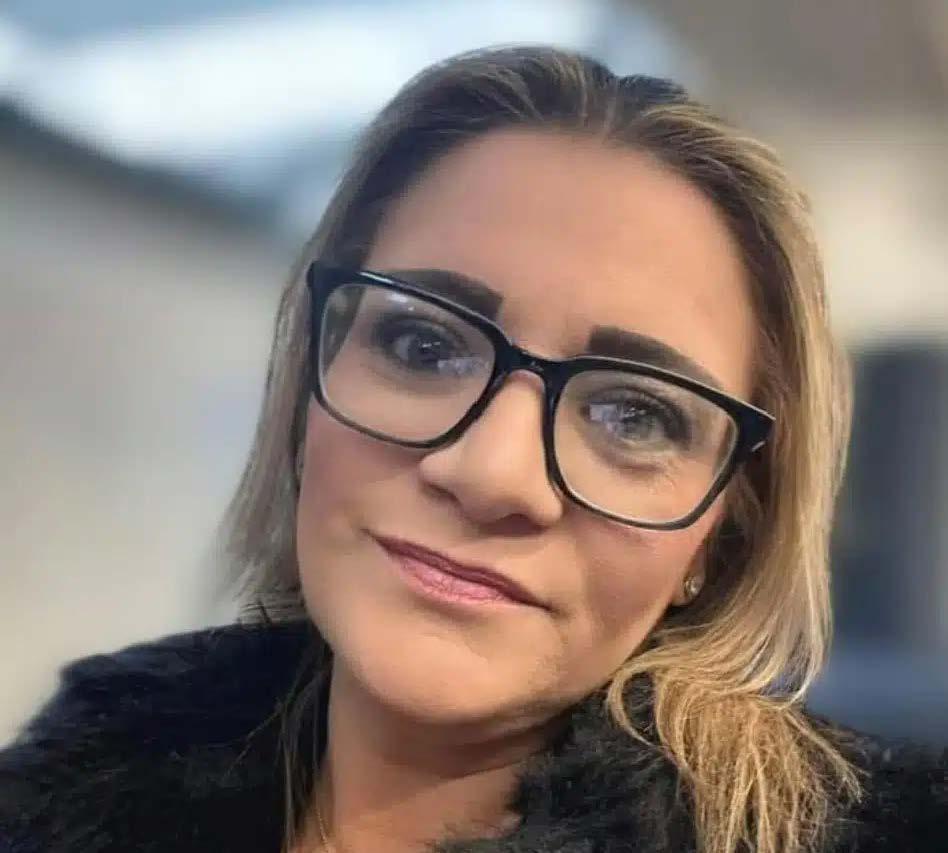
Chris Murray, Women in Rail North West Co-Chair commented: “It is fantastic that we now have more women in the rail sector. As a father to two young daughters, I want to make sure they have access to the same opportunities that I have had in my career. I am proud to be an ally for Women in Rail.”
Challenges and Future Directions: Turner & Townsend recognises that creating an inclusive environment extends beyond recruitment; it involves ensuring that employees feel valued and have equal opportunities for advancement.
The company’s approach to EDI reflects a commitment to fostering a diverse workforce capable of driving innovation and success in the UK construction industry. Through strategic partnerships, internal initiatives, and a focus on accountability, the organisation aims to create an inclusive environment where all employees thrive.
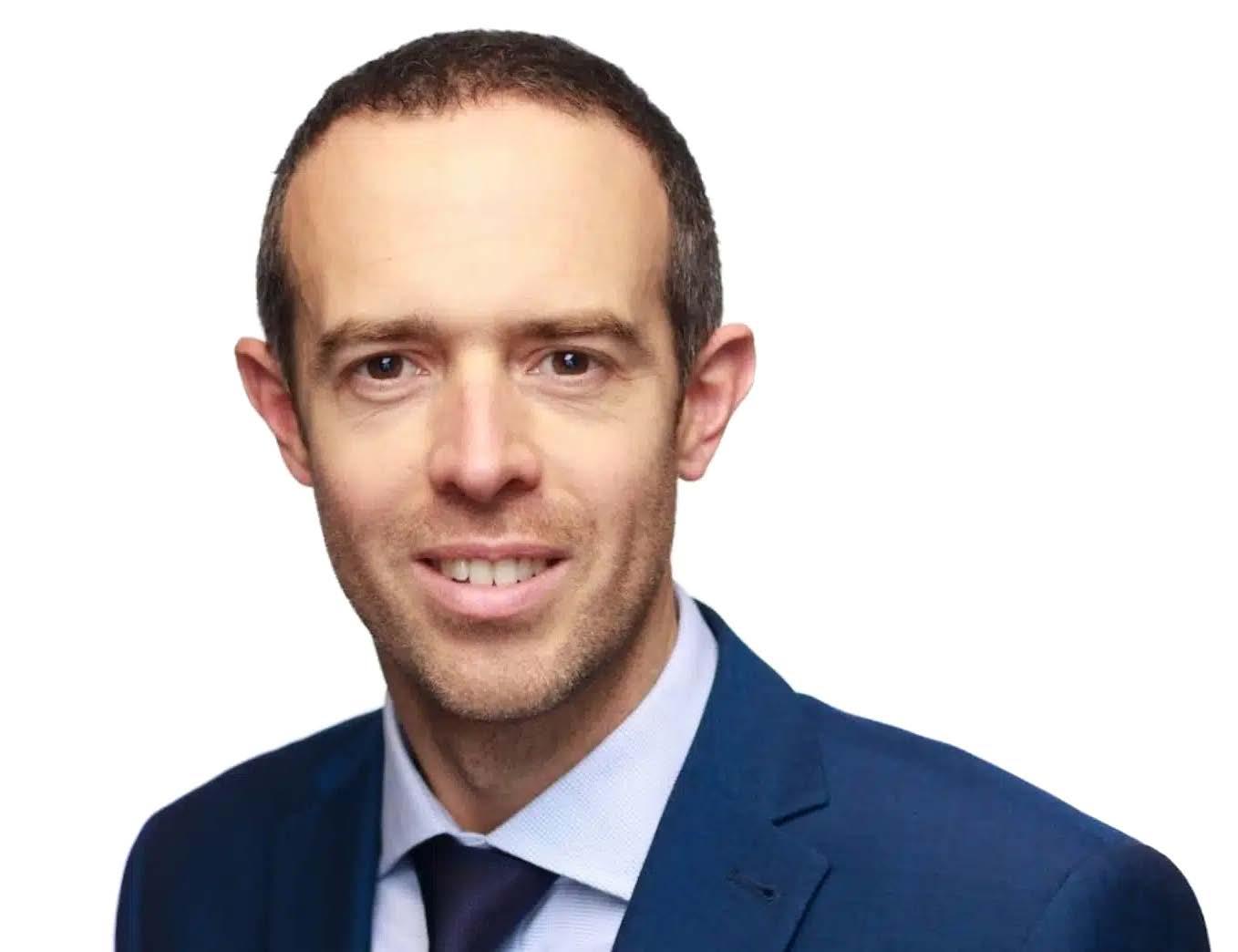
It is fantastic that we now have more women in the rail sector. As a father to two young daughters, I want to make sure they have access to the same opportunities that I have had in my career. I am proud to be an ally for Women in Rail.

Central to our ethos at the Rail Safety and Standards Board (RSSB) is equality, diversity, and inclusion (EDI). This fosters a workplace where everyone feels empowered to be their authentic selves. An inclusive environment not only enhances diversity of thought but also promotes a culture of acceptance and understanding.
Embracing diverse perspectives helps us achieve RSSB’s goals together lowering the potential of blinds spots. We are proud to have achieved Investors in Wellbeing Gold accreditation in RSSB’s first assessment. This follows RSSB’s achievement of Gold accreditation with The Clear Company in 2023. These saw the culmination of various wellbeing workstreams which have supported colleagues in many ways.
For example, RSSB has enhanced health cover such as additional support for menopause, Reframe cancer, and flu vaccinations. Wellbeing Champions were introduced, as were retirement planning sessions and health assessments. Receiving these Gold accreditations shows that this work has had a tangible impact for RSSB’s people.
sexuality, gender, and the challenges they posed during their careers.
These conversations inspired colleagues to reach out and share their own experiences. We’re embedding a culture in which people at RSSB can be proud of their identity and freely share their individual stories. We have created a culture whereby colleagues can openly share with oneanother. We have broadened awareness of the types of neurodiversity. And, we are using colleagues’ experiences to adapt the support available from RSSB.
We are eager to continue these conversations and raise awareness of the importance of EDI at RSSB. We will soon launch an EDI Forum. Colleagues can collaborate there on initiatives and promote and implement RSSB’s EDI Strategy. It will become a hub for sharing support mechanisms together with the RSSB Employee Champions and Wellbeing Champions.
RSSB has enhanced health cover such as additional support for menopause, Reframe cancer, and flu vaccinations.
Ensuring that all colleagues receive the support they need is key to the success of these workstreams. Our new starters are also introduced to the resources as part of the standard onboarding process.
Creating an equitable, inclusive, and considerate culture is central to ensuring that everyone at RSSB feels that they belong. We value all individuals, regardless of their background. Every story and experience is valuable. Our core strength lies in our people, each carrying their own unique story. These narratives shape us as individuals and as an organisation.
This year, RSSB has put its peoples’ stories to the fore. At our recent All Staff Conference, colleagues shared personal stories under the agenda item ‘This is My Story.’ They spoke about their personal stories and what EDI means to them. These stories touched on neurodiversity,
For the first time, RSSB joined the 2024 Pride in London parade. This shows RSSB’s commitment to promoting inclusivity within the organisation. Colleagues in the LGBTQ+ community and allies showed their support and celebrated the diversity within RSSB. The RSSB LGBTQ+ group offers support to anyone in the company. They provide a safe place for colleagues to seek support as they require.
While we progress in the area of EDI, we will continue to assess what further steps can be taken. Together at RSSB, we can make a difference.
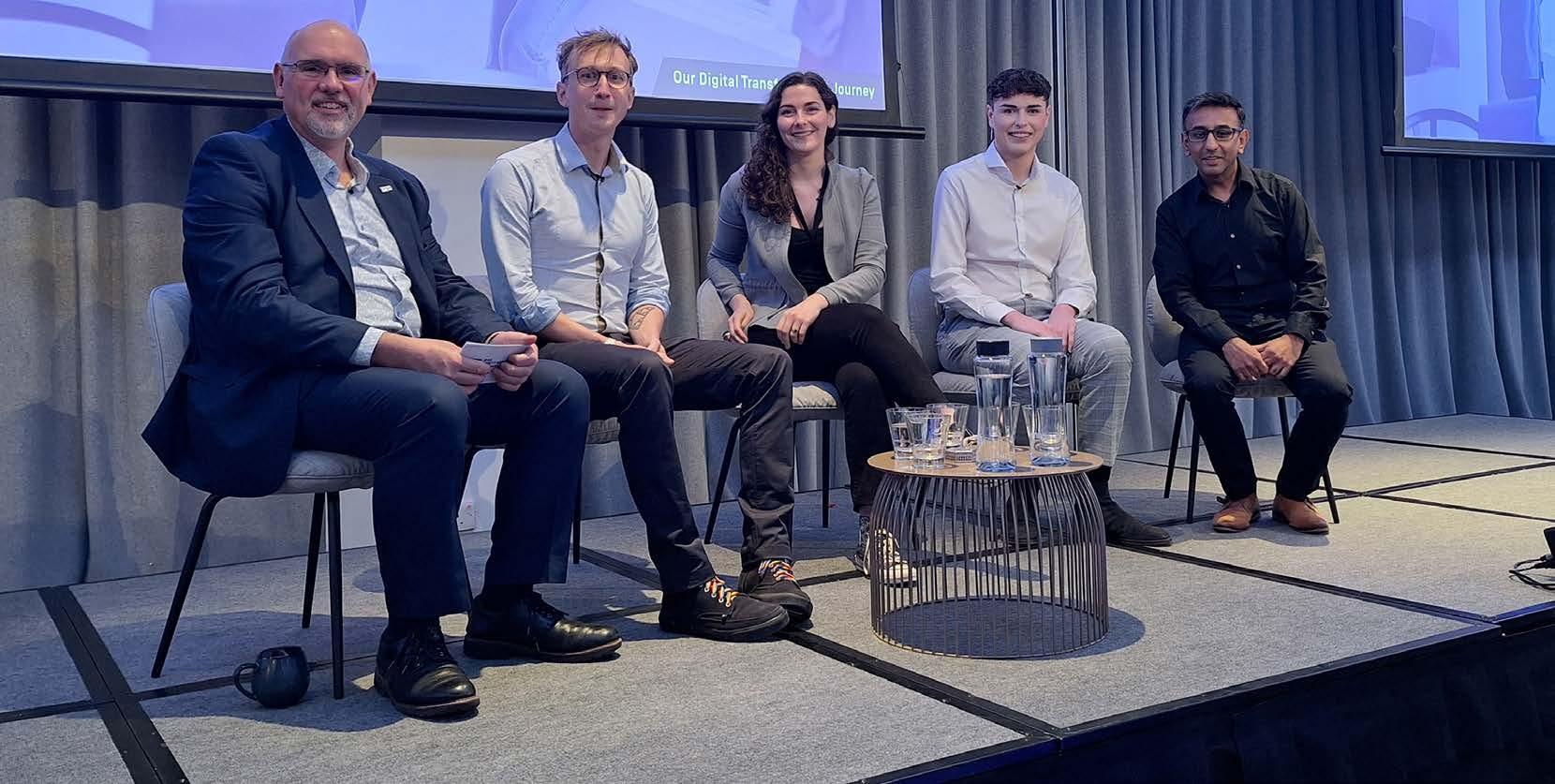
Summary
East Midlands Railway (EMR) uses apprenticeships to drive diversity within their workforce, enabling social mobility and supporting career development.
Context
It is EMR’s objective to use apprenticeships to drive diversity within our workforce, enable social mobility and support the career development of our people. We recognise the benefits apprenticeships bring to our organisation and the wider economy, contributing to the upskilling and diversity of our workforce, helping us serve our communities more effectively.
In 2016, the Department for Transport (DfT) published the Transport Infrastructure Skills Strategy, which highlighted the skills shortages facing the transportation industry. In response to this challenge EMR have played a pivotal role.
EMR are a main provider for apprenticeships L3 Train Driver and L2 Passenger Transport Operative.
Action Undertaken
To ensure we meet our objectives, we set an annual plan which includes recruitment, talent succession planning and learning & development. Our plan is aligned with our D&I strategy, with a key focus on increasing the percentage of female applicants (30%) and percentage of applicants from ethnic minority backgrounds (25%) with targeted recruitment campaigns through social media.
and Driver trainees a safe space to practice their skills using actual trains, including skidpan training for Drivers and onboard live customer service scenarios for our Conductor apprentices.
EMR became the first commercial organisation to receive the Gold Inclusive Employers accreditation (March 2024), due, in part to our work in using apprenticeships to create a diverse and socially mobile workforce.
Through investing in apprenticeships and removing barriers to entry, EMR ensures a pipeline of engaged, skilled professionals, ready to address the evolving challenges of the rail industry. The delivery of our apprenticeship program meets the industries current and future skills needs, supports our objectives for social mobility and is aligned to the wider business strategy and broader industry objectives, setting high standards for training and development.
To ensure we meet our objectives, we set an annual plan which includes recruitment, talent succession planning and learning & development.
EMR has a target to achieve 2.5% of headcount starting an apprenticeship each year. In the last rail year (April 2023 –March 2024) 3.9% of colleagues started an apprenticeship with EMR.
We are committed to recruiting diverse candidates to our apprenticeships and supporting social mobility. As such we do not mandate GCSE or equivalent standards as an entry requirement to our apprenticeship roles. Instead, EMR choose to upskill learners through functional skills, which although logistically challenging is the right thing to do.
Many providers we speak to struggle with embedding Functional Skills into their apprenticeship programmes. EMR has made significant progress in this area. By changing provider, adjusting where the functional skills courses are delivered within the programme and linking completion of the End Point Assessment (EPA) to career progression, we addressed a backlog of functional skills learners reducing this from 35 (June 2023) to 0 (June 2024) whilst driving social mobility within our workforce.
We collect feedback from our learners on a regular basis. One theme which was identified through learner feedback was the requirement to increase practical learning. EMR has since introduced additional simulators for driver training and are working in partnership with Great Central Railway (Heritage Railway) to give our Customer Service
Some of the headline benefits delivered as part of this program are:
• Between June 2023 and June 2024; 74 of EMR’s apprentices passed EPA (5 Level Two; 68 Level Three; and 1 Level Seven). 75% of these learners were supported to achieve functional skills in Maths, English or ICT.
• In the same period 103 colleagues (4.12% of our workforce) began an apprenticeship (36 Level Two; 60 –Level Three; 4 Level Five; 2 Level Six; and 1 Level Seven).
To date, EMR achieved a 93% apprentice achievement rate, compared to the national average achievement rate, 54.6%.
• For the L3 Train Driver apprenticeship, EMR achieved 92.3% achievement rate compared to the national average, 84.5%.
• For the L2 Passenger Transport apprenticeship, EMR achieved 100% achievement rate compared to the national average, 88.6%.
EMR’s apprentices are supported to progress to higher roles in EMR. 68% of our Train Driver apprentices have been promoted to Mainline Drivers after completing their apprenticeships.
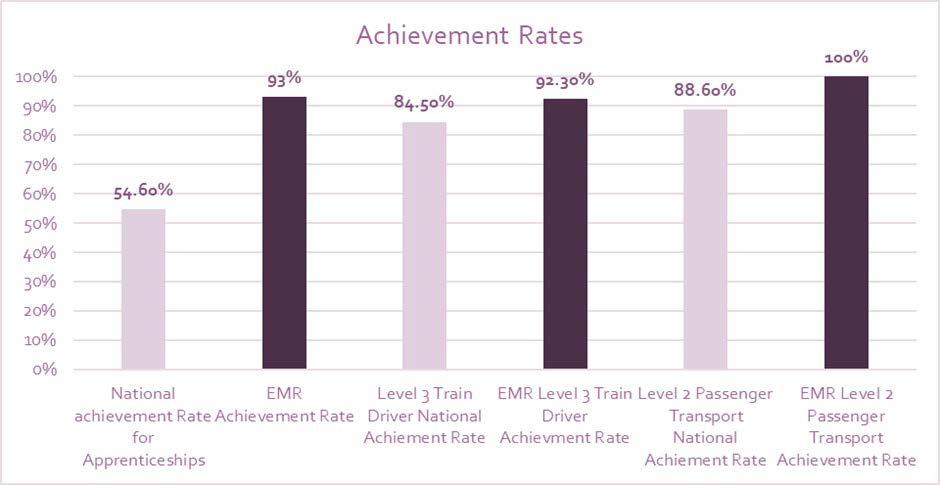
East Midlands Railway celebrated Pride 2024 with two projects in Skegness and Nottingham.
East Midlands Railway (EMR) celebrated their first East Coast Pride with a special Rainbow Train, and EMR colleagues teamed up with Alstom and Nottingham Express Transit (NET) to unveil Nottingham’s first ‘trambow’ ahead of the city’s Pride celebrations.
These projects support EMR’s Equality, Diversity & Inclusion (ED&I) Strategy by demonstrating active support and celebrating with their colleagues and customers, who use the network.
East Coast Pride’s First Rainbow Train
East Midlands Railway’s LGBTQIA+ Employee Network created its second special rainbow livery to celebrate Pride and to promote diversity in its workplace.
The livery, which has been applied to a class 170 regional train (number 170501), includes both the Pride and transgender flags along the sides of the two-carriage train.
Nottingham’s First Trambow
East Midlands Railway teamed up with Alstom and Nottingham Express Transit to unveil a special tram livery to celebrate Pride and the LGBTQ+ community.
East Coast Pride’s First Rainbow Train
The rainbow Class 170 travelled on the EMR Regional network on Saturday, 7 September 2024, taking customers from Nottingham to Skegness to attend the official Pride event taking place on Skegness’s Pride Street (Grand Parade).
Upon arrival at Skegness station, customers were welcomed by Pride flags, banners, goodie bags, sunglasses, sweet treats, including cakes and ice creams.
The Class 170 pride train can be seen out and about on the EMR Regional routes, alongside EMRs existing class 158 pride train, which launched in August 2022.
Nottingham’s First Trambow Alstom teamed up with rail operator East Midlands Railway (EMR) and tramway Nottingham Express Transit (NET) to unveil a special tram livery to celebrate Pride and the LGBTQ+ community.
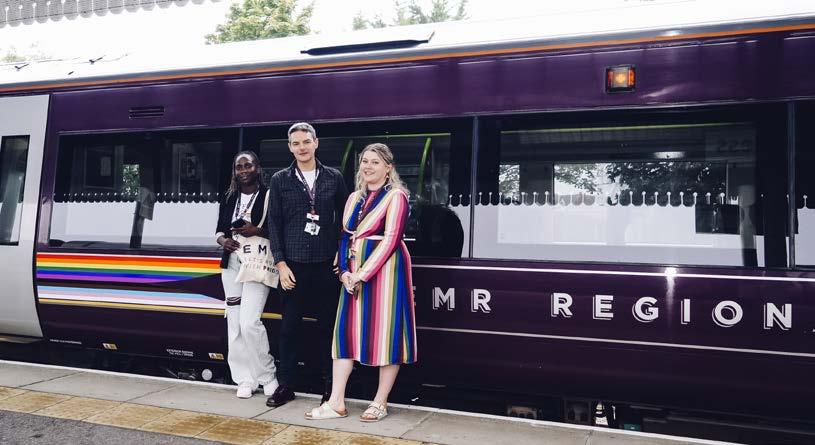
The tram carries a stylish rainbow design – or ‘trambow’ –designed by EMR’s in-house design team, which runs on both of Nottingham’s light rail lines, where it interchanges with EMR heavy rail services.
The three organisations encouraged everyone to ‘Ride with Pride’ – stressing that they want everyone to feel welcome, to be their true authentic selves.
Stronger Together is one of 6 employee network groups within EMR set up in 2021 to better represent its LGBTQ+ colleagues, as well as promoting equity, diversity and inclusion in their workplace and in our communities.
Feedback and Next Steps
East Coast Pride’s First Rainbow Train
“This pride train is a fantastic way of showcasing our commitment as a network to set EMR on the right path to promoting Diversity and Inclusion. It’s also a great way to show our support to the Pride events taking place on our network, one of which being the East Coast Pride at Skegness.”
Mags Luckhurst, LGBTQ+ network member and Senior Conductor for East Midlands Railway
“When East Midlands Railway told us they were launching a new Pride train for our first East Coast Pride in Skegness, we were so excited. As a grant provider for East Coast Pride, EMR was instrumental in making the event happen.”
Brad Johnson, Volunteer Communications Lead for East Coast Pride
Nottingham’s First Trambow
“We are proud to be part of this initiative celebrating Pride and the LGBTQ+ community. The ‘trambow’ is more than just a colourful design; it’s a powerful symbol of inclusivity and acceptance. At EMR, we strive to create a welcoming environment for everyone, whether they are traveling with us or working within our teams. This collaboration with Alstom and NET highlights our commitment to diversity and the importance of visibility and support for the LGBTQ+ community.”
Carl Rowland, Accessibility and Inclusion Delivery Manager at East Midlands Railway


Within a year, we have done a lot of amazing work to make positively impact the lives of younger rail professionals, aswell as the wider community. For the first time, YRP were finalists at the 2024 RailStaff Awards, including in the EDI category.
33% of the executives come from BAME backgrounds
24% are female (including 60% of the chairs office)
●50% of YRP members are neurodivergent
9% of YRP members identify within LGBT
13% of YRP members have some form of disability
• 34% increase of corporate memberships
• 32% increase in individual YRP memberships
With the support of Transpennie Express, YRP members were given the opportunity to expand their presentation skills with accessibility in mind, including audiences with hearing, visual impairments, and those from neurodivergent backgrounds.
We regularly work with the likes of STEM Ambassadors and universities through Rail-Week and Into Rail to deliver events such as depot tours and rail experiences to those outside of the industry. We have also been giving out engagement books in Birmingham. During Railweek, we delivered 32 events across Great Britain in which was the highest number of events we have done. Many of those who signed up for the events later went on to sign up as a YRP member.
Our volunteers have also done a lot of fundraising. Within YRP Wales, £194 for Guide Dogs was raised at a cake sale where the proceeds have helped with naming a guide dog after Brunel. We also did a charity fundraiser for the Railway Children as part of our annual dinner.
YRP have complemented a number of pride events. In Birmingham, we joined Inter Engineering where we have a PRIDE breakfast with a helmet competition, where the prize was a ticket to the PRIDE festival. whilst in Cardiff, we supported Transport for Wales with giving out freebies to the crowd.
We have had a busy year in which we took some young rail professionals to destinations including the Isle of Man, Switzerland, and Milan. These gave attendees the opportunity to visit train operators and manufactures abroad, and to also learn about the history of rail in those areas The feedback was also really good.

YRP are now starting to work more closely with universities across the UK. This includes the Cambridge University Railway Club (CURC), with the aim of providing their students with the perspective of a graduate’s journey. We have delivered talks at several universities, as well as also engaging with the public at several large stations where we gave out safety related freebies to passengers.
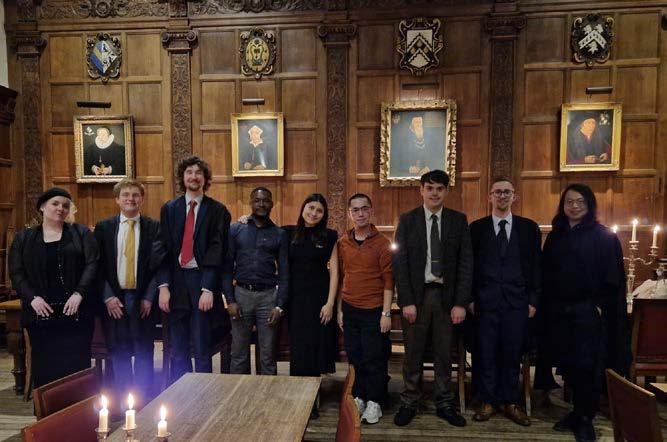
We have continued our close partnership with the Ffestiniog Railway, where have done five weekend trips this year alone, in which vegetation was removed, cables were laid, and the volunteers all had a great experience.
For children with disabilities and/or living in care, we chartered an illuminated steam train at the Watercress Line in December, where over 180 passengers took a special journey to Alton and back.
During Railweek, we delivered 32 events across Great Britain in which was the highest number of events we have done
Santa was also on board and gave presents to the children. The train was lit up, and Christmas music also played. Many of the children were dancing for most of the journey, and the feedback was overwhelmingly positive.

At Intuitive Talent Solutions, we excel in connecting top rail and transport organisations with diverse candidates for key interim and executive positions. Our approach blends intuition and experience to ensure a seamless match based on skills and culture fit.
In 2024, one of our leadership candidates, Rachel Geliamassi was successful in gaining a role, Customer Service Director, with our client, Great Western Railway. Rachel’s previous role was Managing Director of a UK bus company.
Rachel explains “As Customer Service Director for Great Western Railway, I’m in charge of overseeing every touchpoint we have with customers. My focus is on ensuring that our people are not just prepared, but genuinely engaged in providing the best possible service. Because when our teams feel valued and empowered, it translates to a better experience for our customers.”
Rachel goes on to explain about her career in rail so far “It’s exciting to think about the potential rail has to grow and improve if we can tap into that collective intelligence and energy. The culture at GWR is something special – it’s built on pride, passion, and a commitment to the highest standards. There’s a real drive here to be the best at what we do, and that’s incredibly motivating to be a part of.

explains “Over the first six months at GWR, the coaching I received made a significant difference. Switching sectors was a big shift, and having Metisblue’s Laurent as my coach provided a great sounding board during this period. He made it easy for me to share my experiences openly and helped me identify where I could focus my efforts to make the most meaningful impact right from the start. I had the space to reflect and prioritise what would drive the best results in my new role.”
Mark Hopwood, MD at Great Western Railway adds “Rachel joined GWR with bags of enthusiasm and some fantastic experience. She has set to work effectively and is challenging us all to think differently, act faster and put the customer at the heart of what we do. It’s essential that we don’t just maintain the status quo but continuously strive for improvements that truly serve our customers and our teams.”
Finally, Rachel shares “I can’t speak highly enough about the role Intuitive played in my transition from bus to rail. Making such a significant move in my career, it was crucial to find a role that truly fit – not just on paper, but in practice. What sets Intuitive apart is their instinct and deep sector knowledge.
Intuitive’s holistic view of the transport sector, and their commitment to understanding the unique aspects of each role and individual, is a breath of fresh air.
At Intuitive we like to bring true, sustainable value into our service. The 90 Day Accelerator is a bespoke onboarding programme offered as part of Intuitive’s executive search service and delivered by leadership development experts, Metisblue. The programme combines Intuitive’s expertise in c-suite recruitment and leadership onboarding to help high-value candidates make an impact faster. You won’t get this level of executive onboarding support anywhere else.
GWR MD, Mark Hopwood offered this programme to Rachel as part of her onboarding experience. Rachel
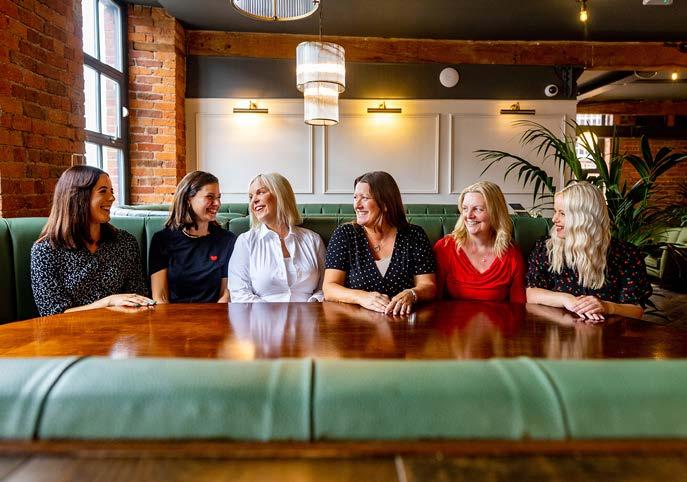
I’m incredibly thankful for the continuous support Intuitive has provided, not just during the recruitment process, but even after I started my new chapter with GWR. It’s clear they’re genuinely invested in the long-term success of the people they place, and that’s something I truly appreciate.”
www.intuitiverecruitment.com
say-hello@intuitiverecruitment.com
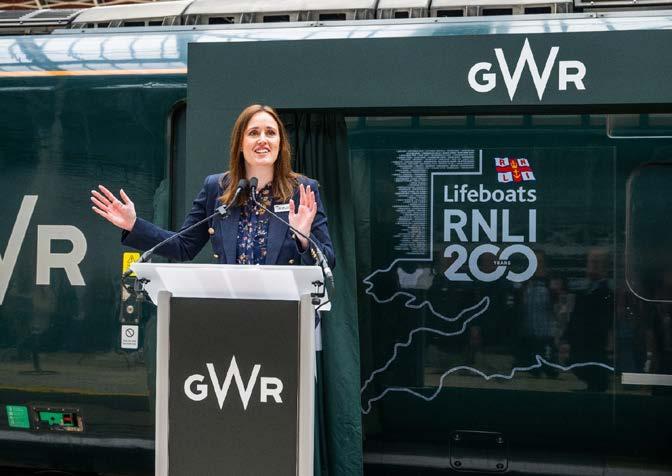

In the rapidly evolving landscape of the rail industry, building a culture of inclusion, diversity and employee support is more crucial now more than ever. As the industry strives to improve employee engagement, attract a diverse talent pool, and maintain a positive work environment, staff networks have emerged as a key resource for creating inclusive and supportive spaces.
At Rail Delivery Group (RDG) we are very proud of our staff networks: Embrace, which focuses on race equality; Empower and Empower Allies, which focus on gender equality; Disability Awareness Network; Platform, who look at LGBTQ+ issues; Working Parents; Carers Community ; and our soon-to-be-launched male mental health network. We also encourage allyship across all networks, inviting employees from outside of these communities to participate, learn, and support their colleagues. These networks are integral to cultivating a culture that embraces diversity whilst creating an environment where all employees feel valued and included.
At the heart of our staff networks is the creation of a safe space for colleagues to connect, share, and seek support. Within a demanding industry like rail, employees often face challenges that are deeply personal and specific to their identity or life situation. For instance, a disabled employee may experience difficulties with workplace adjustments, whilst a working parent may grapple with balancing the demands of the job and family life. However, the work of staff networks is not only about those directly affected. The involvement of allies – those who are not directly affected by the issues faced by a specific group but are committed to supporting their colleagues – is an integral part of RDG’s approach to staff networks. Allies play a key role in advocating for their peers, raising awareness, and helping to maintain an inclusive workplace for everyone.
that can be misunderstood or misinterpreted. Allies are encouraged to join, learn and act as advocates for improving the workplace for their disabled colleagues. By working together, the network and its allies can push for changes that benefit everyone, such as improved facilities, better communication around workplace adjustments, and greater awareness of the impact of health conditions on individuals.
The Carers Community and Working Parents networks provide crucial support for individuals navigating the pressures of caregiving alongside full-time employment. These networks serve as vital lifelines for staff to find colleagues who understand their challenges and offer guidance based on shared experiences. Allies such as managers or colleagues without caregiving duties are encouraged to participate in these networks to better understand the challenges carers face, and advocate for more flexible working practices, increased support, and a workplace culture that respects these dual roles.

The creation of RDG’s upcoming male mental health network is particularly timely. Mental health has become a growing concern across industries, and men often face cultural and societal pressures that discourage them from openly discussing emotional and mental struggles. The creation of this network underscores RDG’s commitment to breaking down stigma, promoting open conversations, and providing resources for men to seek help without fear of judgement. Allies can help by encouraging transparent conversations around mental health; it is a topic that affects everyone, and by building a culture where open discussion is encouraged and supported, we can better address these issues and improve overall wellbeing.
Disability Awareness Network offers employees a safe forum to voice their concerns, advocate for necessary workplace adjustments, and raise awareness about non-visible disabilities, such as mental health conditions,
Staff networks also play a pivotal role in promoting diversity and addressing the specific challenges faced by underrepresented groups. Our networks for race equality ( Embrace), gender equality (Empower and Empower Allies), and LGBTQ+ (Platform) are all crucial for driving conversations around identity, inclusion and equality. However, true change only happens when these


conversations are not limited to those directly affected, but also involve active allies – those who support, amplify voices, and advocate for the networks, regardless of their own background.
Embrace, for example, is vital in amplifying the voices of employees from ethnic minority backgrounds, addressing barriers to career progression, and promoting cultural awareness throughout RDG. This network fosters an environment where conversations about race and representation can be held openly, helping to create a more inclusive company culture. By educating themselves about racial discrimination and unconscious bias, allies can take action to challenge stereotypes, address discrimination and promote a more inclusive culture. Allyship in this context is not passive, but involves actively working to elevate the voices of underrepresented colleagues.
Both Empower and the Empower Allies groups play a significant role in advocating for gender balance across the workforce. While traditionally the rail industry has been male-dominated, efforts to increase female representation have gained momentum in recent years. Not only do both networks ensure that women and non-binary people’s voices are not just heard, but they actively help to shape policies and practices. By addressing gender-based challenges, they help to break down barriers to entry and advancement. Allies of any gender are crucial to Empower ’s mission. Male allies in particular can play a significant role in challenging gender stereotypes and advocating for equal access to opportunities.
on LGBTQ+ issues to develop their awareness and understanding and thus challenge discrimination based on sexual orientation and gender identity, it helps to create a culture where everyone feels welcome and valued.
One of the most powerful outcomes of RDG’s staff networks is their ability to foster a sense of belonging and community amongst employees. With the increase in hybrid working, this is a particularly important aspect of their role, helping to combat feelings of alienation or isolation.
By bringing people together based on shared identities or backgrounds, staff networks help to cultivate connections across different departments, uniting employees who might otherwise never interact. This sense of belonging can lead to higher job satisfaction, greater employee engagement, and improved retention, as employees are more likely to stay with an organisation where they feel supported and valued. Allyship helps to enhance this sense of belonging. By joining networks, they demonstrate that the challenges faced by underrepresented groups are not solely the responsibility of that group to solve; instead, allyship creates a collective effort to make the workplace more inclusive for everyone, leading to greater empathy, understanding and solidarity.
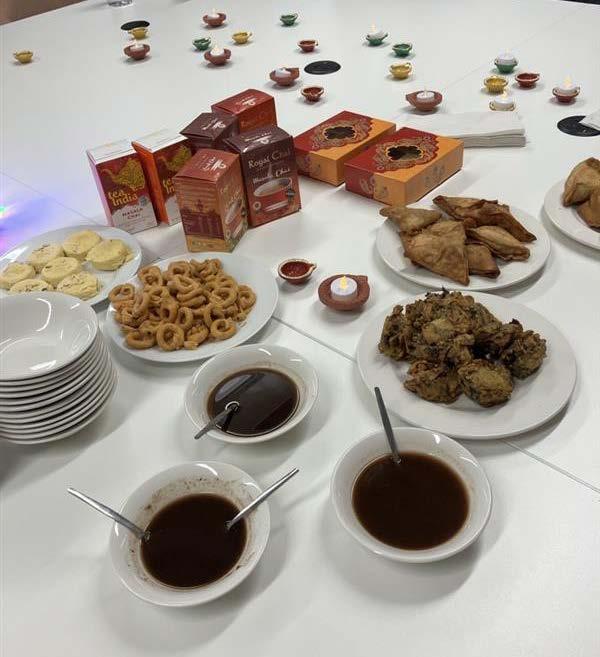
Similarly, Platform provides a supportive environment for employees who may have faced discrimination or exclusion based on their sexual orientation or gender identity. The network has been instrumental in providing a safe space for LGTBQ+ colleagues to share issues and celebrate successes and promoting awareness and understanding of those issues in the broader organisation. When allies participate in events, educate themselves
The value of staff networks cannot be overstated. They play a crucial role in providing support, promoting diversity, driving inclusion, and fostering a sense of belonging amongst employees. By giving our staff a voice and advocating for positive change, these networks contribute to a more resilient, more engaged, and more innovative workforce. By fostering allyship, we can create a workplace where everyone feels included, supported, and empowered to contribute to our shared success. As we continue to grow and evolve as an industry, it is essential that our workforce reflects the communities we serve. In maintaining an expanding our networks, we ensure that every employee, regardless of their background or lived experience, has a place where they are heard, valued and respected.
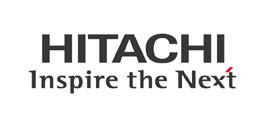
Hitachi Rail’s senior leadership community have been on a learning journey, focusing on inclusive leadership and upskilling leaders to take meaningful actions, which foster an inclusive culture. In 2023, a Diversity Development Standard audit revealed an opportunity to use role modelling to demonstrate and embed inclusive behaviours across the organisation. The organisation was awarded a place on the Royal Academy of Engineering’s
The Social Value & EDI team are running inclusive culture workshops to the wider organisation
Inclusive Leadership Pilot Programme, designed to support organisations to deliver an inclusion project. This provided an opportunity to design a bespoke programme to enhance the EDI learning experience of the leadership community. The internal project team made up of Eleanor Wase, Taija Clarke, Jo Pennell, Ben Watt, Julian Perkins, and David Palmer, designed and delivered the programme. The four sessions included various learning techniques and delivery styles, covering the following topics:
Women in Rail Yorkshire Group brought men around the table to discuss the power of allyship and celebrated men’s mental health on International Men’s Day.
In November, WR Yorkshire celebrated International Men’s Day with an event in York sponsored by Network Rail, focussed on men’s health and the power of allyship. The purpose of the session was to shine a spotlight on male mental wellbeing and how women can support men by being effective allies. Lucas Whitehead from ANDYSMANCLUB opened the event, sharing some shocking statistics about men’s mental health and the great work they are doing to support men across the country.
The aim of the club is to provide men with a safe space, where they feel comfortable to talk and open up about their experiences in a room free of judgement. He also shared the extraordinary work that Andy’s mum Elaine Roberts has done with the charity and how she has championed mental health across the UK. Elaine was one of the co-founders of ANDYSMANCLUB with Luke Albler.
Matt Rice, Route Director at Network Rail talked about the importance of allyship in the workplace, making time to really listen to people and being curious with questioning. He shared some great insight about the power of being an ally to women’s development and how it is important
Allyship in Action; taking leaders through different forms of Allyship and how to provide a platform for people
• Psychological Safety; demonstrating the power of creating a space where people can be their authentic selves
• Intersectionality & Understanding Privilege; how to approach EDI with a lens of intersectionality and how privilege can be used to empower others Positive Action vs Positive Discrimination; how positive action schemes are created and can transform inclusive processes
Success was measured through a series of surveys, showing a 37% increase in understanding and awareness of EDI topics and a 17% increase in confidence levels to take the practical tools into leadership styles. The programme has enabled the leaders to leverage their collective power to catalyse change towards greater inclusion. The Social Value & EDI team are running inclusive culture workshops to the wider organisation, cascading the learning. The programme was a success in what is a long and evolving learning journey towards greater inclusion at a systemic level across the railway and engineering industry.
for leaders to get to know their teams on more personal level. We finished with a panel discussion to give attendees the opportunity to hear from leaders across the rail industry on this important topic. Joining Lucas and Matt on the panel hosted by Helen Townend from Amey were; Lisa Leighton – People Director at Northern, Tom Flannery – Practice Manager at AtkinsRealis and Kathryn Oldale – Head of Strategy, Policy and Communication at DB Cargo. The panel shared their take own allyship, with the main outputs of the conversation about giving people time and space, the power of storytelling and actively listening. In order to change behaviours, it’s important to include everyone in the allyship conversation to ensure that it is never one sided.
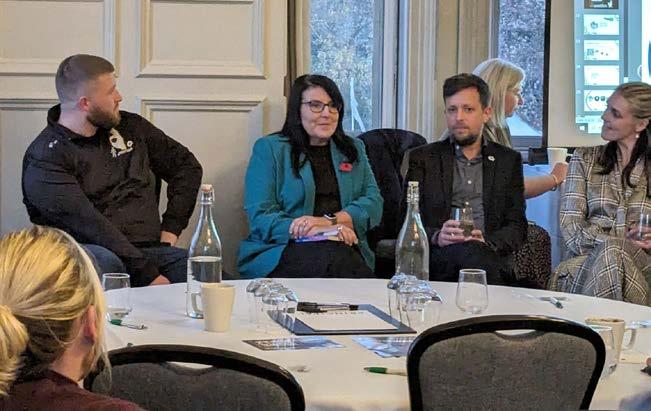
This year our D&I forum introduced their broadcast series “Let’s Learn About...” live, listen in learning about different diversity topics.
The sessions are designed to promote understanding and conversations around Diversity and Inclusion. Hearing from colleagues and guest speakers about their experience and learning how we can better support each other as well as how AmcoGiffen can better support colleagues.
The launch session was about Neurodiversity covering Dyslexia, ADHD and Autism with colleagues bravely sharing their personal experiences. Following on from the session we created handy toolkits to help colleagues identify the conditions in addition to signposting the support that is readily available.
Our latest “Let’s Learn About…” session was about our partnership with the Armed Forces Covenant. We are proud to support those who serve and have recently received the Employer Recognition Scheme Silver Award.
Our Women at AmcoGiffen forum have also been working on some “Let’s Learn About…” guides focusing on Menopause and raising awareness of the Male Menopause and how to get support.
We are currently on our journey working towards the Investors in Diversity Accreditation and are proud of our
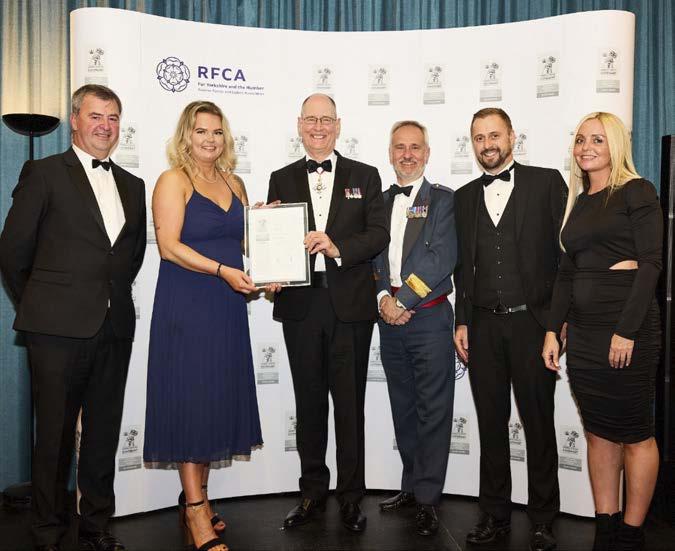
achievements so far. We launched FREDIE (Fairness, Respect, Equality, Diversity, Inclusion and Engagement) as our Diversity & Inclusion values which compliment and work hand in hand with our company values SPIRIT (Safety, Professionalism, Integrity, Respect, Innovation and Teamwork). We have lots of exciting plans for 2025 with the continuation of our “Let’s Learn About…” sessions focusing on a Dignity & Respect campaign.
At Porterbrook, we recognise the importance of equality, diversity and inclusion in shaping a resilient and innovative rail industry.
The 2024/25 academic year will mark our third year supporting the Primary Engineer Rail Programme, to inspire the next generation of engineers close to our Long Marston Rail Innovation Centre. Over the last two years around 1400 pupils from the local area have taken part in the programme. Primary Engineer seeks to engage with students from a variety of backgrounds, including those that are underrepresented in rail. In 2024, 48% of pupils


taking part were girls, 16% were eligible for free school meals and 9% did not have English as their first language.
Some of the students also partnered with leaders from across the rail industry to take part in a live engineering challenge on stage at Rail Live.
The Kedleston Group, dedicated to providing education and support for children with special educational needs, aligns with our vision of empowering young people through hands-on learning experiences. By collaborating with the Kedleston Group, we aim to introduce students to the working world through providing employability sessions. This initiative encourages students to explore their creativity and problem-solving skills while gaining practical insights.
Our partnership with Holbrook Autistic School is pivotal in promoting employability skills among neurodiverse students. Our sessions focus on developing skills, such as communication and teamwork. Through mentoring and hands-on projects, we aim to bridge the gap between education and employment, ensuring that every student feels valued and equipped for the workforce.
Porterbrook is committed to championing EDI within the rail sector. By investing in the next generation, we are not only enhancing the diversity of our workforce but also ensuring a brighter, more inclusive future for the rail industry.
It’s been a busy year for Trenitalia c2c’s Diversity & Inclusion team. Since winning the Rail Staff Award for ‘HR Diversity & Inclusion Person or Team of the Year’ back in November 2023, their D&I Manager Paul McGunnigle-White said, ‘it’s been nonstop.’
Reflecting on the award, Paul said ‘just to be nominated was an absolute honour, especially in a category where so much amazing work is being done. I took the win as validation that we were doing a good job, that we were heading in the right direction, and I wanted to carry on with that momentum and push it even further.’

Paul shares the role of Diversity and Inclusion Manager with his other role of Treasury Manager at Trenitalia c2c Ltd. ‘It can be a bit of a juggling act, it can be stressful, but many of people in the EDI space are doing the same because they are passionate about it, and are volunteering in the roles, or doing a lot of the work in their own free time’.
With some amazing EDI initiatives, c2c have highlighted some of their key successes and future projects:
c2c explored different religions during Inter Faith week in 2023, looking at how faith and religion play an important part in the workplace. Paul commented: ‘For so many, being able to bring that part of themselves to work is

This year, c2c were also invited to participate in Thurrock’s first ever Pride event. The organisers set up a meeting with c2c to discuss a collaboration. It was a momentous occasion to be part of and c2c chose to sponsor the event so we could support this important piece of Thurrock’s history. c2c pride themselves on being rooted in their community and often support local organisations to showcase EDI in the areas they serve.
Jon Tilley, the chair of ‘Thurrock LGBT Community’, recalled the collaboration saying ‘c2c were an invaluable support as a sponsor for Thurrock’s first Pride. Their contribution made the event a historic and memorable occasion for the LGBTQ+ community and its allies of Thurrock and beyond. And for me personally, I was so grateful that they took a chance on us. It meant so much to have such a high-profile company involved. c2c’s commitment to fostering inclusivity and diversity within our community is truly commendable, and we are incredibly grateful for their partnership in this endeavour.’
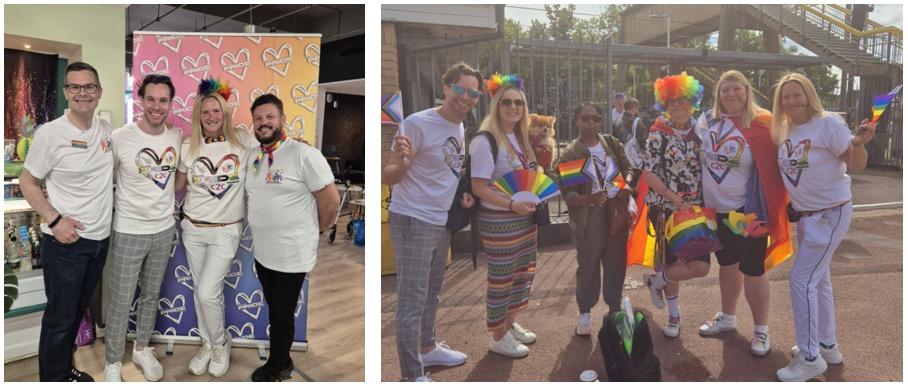

video internally and externally, with it being their most viewed EDI video.
The event was filmed by Blatella Films, who also sponsored the event. c2c and Blatella have worked together on many projects, having filmed all their EDI content. A feature film was created to document the historic event, titled ‘Our Journey to Pride’, which has recently been doing the circuit at many film festivals in the UK and abroad, even headlining across the Atlantic at the Lavender Riot Film festival in Tennessee, where it took the top prize of Best Featured Film.
Benjamin Scarsbrook, senior filmmaker said: ‘At Blatella films we’re very keen to highlight areas of our community that are often underrepresented. Through our work with c2c and their EDI team we have been made aware of several great initiatives that are being spearheaded by c2c and it’s been a privilege to help them highlight these key partnerships through film. Paul and his team are great at finding an often quiet voice and making it shout.’
Mental health has been an important subject for c2c this year. Teaming up with Basildon Mind on several occasions, they have put a spotlight on this important cause with an aim of spreading the word about Basildon Mind’s work in the local community, while also normalising the issue of mental health amongst their staff, encouraging them to talk and offering a place to do so.
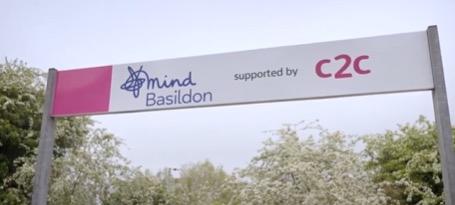
A video was created to document the changing of all the location signs at Basildon station to ‘Basildon Mind’ during Mental Health Awareness week in May.
Lead Fundraiser for Basildon Mind, Stuart Short was extremely grateful for c2c’s contribution to mental health awareness saying: “Talking about it is halfway to improving everyone’s mental health. The partnership with c2c has been so important in raising awareness of the help that local Minds provide to all their customers and staff. Whether at a station engaging with customers or making presentations on improving your mental health at c2c’s Health and Wellbeing Pop-Ups, this important partnership lets everyone know that they can get the support and respect they need for better mental health. “
c2c have also teamed up with Southend United Football Club this year to promote the importance of exercise and movement, and its benefits to Mental Health. As sponsors of the football club, c2c are a constant presence at the club, making themselves part of the community, pushing this important message. The work with SUFC has seen some great video projects including a training session with head coach Kevin Maher and the launch of the new c2c sponsored kit, for which the launch video was recognised in the ‘Best Branded Content’ category at the Football Content Awards 2024. The videos were all made with the
intention of encouraging community spirit, togetherness and wellness through fitness.
c2c recently partnered with local charity ‘The Sycamore Trust’ and the ‘Neurodiversity Centre for Excellence in Transport’ industry group for their Autism Awareness video project. The video focussed on what an journey can be like for many autistic and neurodiverse people, the challenges they face and how the industry can evolve and adapt to welcome more neurodiverse passengers. Steve Dixon, Marketing and Communications Manager for ‘The Sycamore Trust’ admitted:
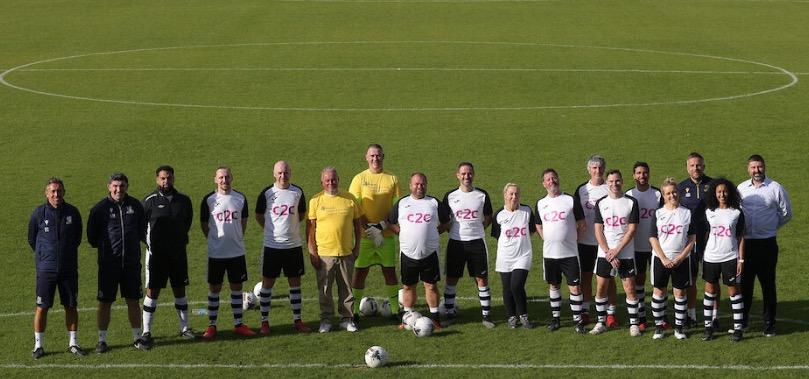
“We are so pleased that a major travel operator has adopted such a positive approach to the autistic community. We hope it will raise awareness of the issues faced by autistic people when it comes to using public transport, and we hope it will encourage greater empathy from the travelling public”.
With SouthEastern, c2c also lead and hosted the Rail Unites for Inclusion ‘International Men’s Day’ event in November. The hybrid event brought together many individuals from across the industry to celebrate positive male role models, with panel discussions on Mental and Physical Health, features on Andy’s Man Club and Dads Unlimited as well as nutrition and supplement information to help men understand how food can be medicine for their bodies. This was a topic that has not been discussed enough in recent years, with many men feeling overlooked in the EDI space. It was a great way to put a spotlight on this demographic, and make them feel represented, after all inclusion does mean everyone.
c2c have also worked with Inclusive Employers to create a new ‘EDI Behaviours’ training programme for their managers. Paul said ‘I felt like there was a bit of a gap in our training that focussed purely on people managers and how they interact and respond to their direct reports, from an EDI perspective’. He continued: ‘Many people in rail have been in the industry for a long time, they might not have managed someone from a different cultural background to them, or an LGBTQ+ person, or someone who identifies as non-binary, they may need some support in helping disabled or neurodiverse employees or understanding inclusive language and banter. This training will help them to be better managers’.
The EDI journey continues for c2c, with their sights set on gaining Investors in Diversity accreditation. Paul summarised: ‘There’s still a lot of work to be done, but we’re enjoying the process, trying to deliver our EDI goals and celebrate our incredible diverse workforce’
When thinking about equality, diversity and inclusion, Flotec’s Head of Marketing, Barry Michael Aldridge says, rail has an incredible amount going for it.
Flotec Industrial Limited is a trusted and leading supplier of reliable hose and engineering products to the rail rolling stock market. Founded in 1995, the Loughborough-based SME is noted for its own label hydrostatic hose product and award-winning variable pitch fan technology, all designed to reduce train fleet downtime and improve their efficiency.
When thinking about equality, diversity and inclusion, rail has an incredible amount going for it. I always tell people with great enthusiasm that when first entering rail in early 2017, I was immediately captivated by its kindness and inclusion. To my delight, there was no shortage of mentoring and guidance from industry peers to help me find my feet and set me on my journey.
Having worked in many industries prior, rail seemed to have something quite unique and special about it. I suppose it helped that I have always held a personal passion and love for trains but there was more, the people were welcoming, encouraging and supportive.
As I pen this piece almost eight years on, rail still manages to thrill, engage, excite, captivate and inspire me. The rail industry is incredibly diverse in terms of both the
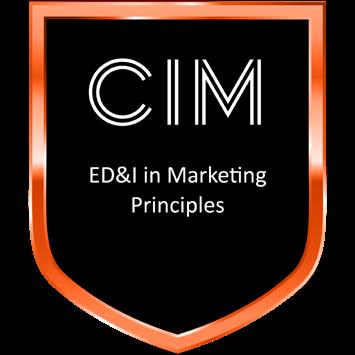
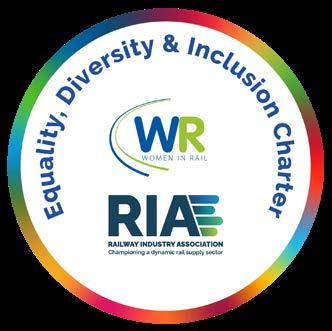
organisations and the people that operate and work within it.
Whilst I agree that equality, diversity and inclusion does indeed, foster innovation, creativity, productivity and profitability, for me, the importance of EDI runs much deeper.
Having been targeted and victimised myself for reasons that defied legally protected characteristics, I know and
Equality, diversity and inclusion is much, much more than a corporate box ticking exercise, it is a necessity for the wellbeing of society and betterment of organisations.
understand first-hand just how painful and damaging the impact of hate and prejudice can be.
I also think that it is everybody’s responsibility to champion EDI which, spans far wider than the roles and responsibilities of companies and their HR Manager’s.
Equality, diversity and inclusion is much, much more than a corporate box ticking exercise, it is a necessity for the wellbeing of society and betterment of organisations.

“When thinking about equality, diversity and inclusion, rail has incredible amount going for it.”
Barry Michael Aldridge BA (Hons) FCIM CMktr Head of Marketing for Flotec and EDI Champion
Without a doubt, there is a genuine desire in the rail industry to support, respect and encourage one another.
With so many EDI initiatives taking place, it is little wonder that we refer to ourselves as the ‘railway family’.
In many ways, I consider rail and those of us involved with it to be true pioneers of equality, diversity and inclusion of which, other industries and sectors could learn a great deal.
Having worked for organisations of many sizes and structures, Barry is often quite vocal about his passion for SMEs. Here, he takes some time to reflect upon and explain why:
When considering the vast numbers of small to medium enterprises and their collective contribution to the UK’s economy, it is understandable as to why I feel so passionately about them.
For many years now, I have held the dream of working for an SME that could act as an ethical ambassador for others to draw inspiration from. Flotec is proving itself to be paving the way towards becoming exactly that.”
Barry has received numerous accolades and awards throughout his career with some notable recognition being for his contribution towards business ethics. Here, he discusses a few of these achievements: Back in 2017, I was nominated for an All-Parliamentary Award for being a Responsible Business Champion.
In my latest self-published book, ‘Legacy’, I make the statement that even though we are all different, we ask to be treated the same. With respect and dignity. I think that this is a good thing to always keep in mind.
At the time, I was in the process of writing and publishing a substantial Corporate Social Responsibility document. When a local MP visited the manufacturing plant to officially open a new unit, she spent some time sitting with me to discuss my vision for the marketing strategy. New to the company, I showed her my work being completed on the CSR project and how I intended it to guide the business trajectory forwards in an ethical way.
Furthermore, SMEs have a wonderful ability to adapt and innovate at rapid speed, mainly due to not being bound by red tape and bureaucratic restraints – and they play a key role within the rail supply chain.
Attend any rail related event or exhibition and it is astounding to witness firsthand, the sheer volume and diversity of SMEs supplying a varied and eclectic portfolio of critical products and services to the likes of OEMs, operators and the railway networks infrastructure.
Smaller companies often display positive advocacy towards EDI. Flotec is a shining example of this. Having only twenty-five employees in total and being employeeowned, we all have a vested interest in the success of the business and as a team, all pull together to achieve combined goals and objectives.
By the very nature of Flotec, its size and structure, EDI happens almost naturally. As a team, we all embrace our differences, celebrate between ourselves every success and work together towards any given task.
Celebrating difference at Flotec is important, both differences in our individual personalities – the very things that make us the human beings that we are – and our respective job roles.
As a small team, we all rely on our individual skillsets, qualifications and different experiences to work towards an aligned vision.
A toxic work culture, would quite simply, not work at Flotec. The team is too small and the end goal, far too important.
In the first quarter of 2024, I was a finalist for the Diversity and Inclusion Leader category through the Business Desks East Midlands Business Leadership Awards. I always feel humbled by any accolade but think it important to stress that, I don’t do what I do to win awards.
A long-time believer in aligning commercial and ethical behaviour, I genuinely think that whilst it is necessary for businesses to be profitable, this profit does not have to come to the detriment of ethical conduct.
Known for his strategic creation of company visions, missions and values, Aldridge comments: Obviously, there is a plethora of evidence to suggest that an aligned company performs better, and this is where tactics such as having a company vision, mission statement and set of values comes into play.
Such ‘North Star’ creation can ensure a combined understanding of the businesses purpose, its culture and singular objective but, to gain engagement from both employee’s and external stakeholders, must be authentic and believable.
When writing Flotec’s vision, mission and core values, I ensured to place ethics as a top priority, aiming to be inclusive of the team at Flotec and relevant to its employee-owned status.

Kier Transportation’s Rail & Aviation business has seen huge development and growth over the past year, led by a fantastic senior leadership team invested in EDI. Here some of the SMT share their thoughts on the importance of diversity in our industry and why they are driving this from the top.
Why is diversity and inclusion critical to the future of the UK rail industry and modernising transportation?
Mandy Duncan: We need to modernise, finding smarter and more efficient ways of engaging with our customers and challenging the very essence of how we work. We’re only going to achieve this if we think differently and surround ourselves with diverse discussions and experiences which enable positive change in transportation and the railway.
Sarah Fortune: We are an ageing industry so to attract, retain and develop the very best talent for the future we have to do everything we can now to ensure we open our doors to build diverse and equitable teams.
Sarah Keenleyside: Our industry needs good people. What makes us different makes us unique, and the more diverse we are the better chance we have of bringing balanced views and experiences to our work.
What is one crucial step organisations should take to ensure that underrepresented groups have equal opportunities to enter, grow, and lead within the UK rail industry?
Sarah Fortune: Ensure everyone truly has access to all available opportunities. Allies are key and this comes from accepting we all have areas we need to work on and unconscious biases that can and should be challenged.
Sarah Keenleyside: The messaging starts from the top so having a diverse SMT is a good start. We need to give the best people the opportunity, and make sure that background or experience isn’t a barrier. Understanding that if you look after your workforce that workforce will have pride and want to look after the company.
How do you demonstrate allyship to women in the rail industry, and what do you believe are the most effective ways male leaders can support gender diversity in the workplace?
Dan Hutchings: I believe the strongest message I can send with respect to allyship is to build teams which are diverse and inclusive. Recruitment must attract male and female applicants in equal measure, this can be achieved by simply reviewing the language used in adverts and demonstrating flexibility in the interview process. Once you have that diverse team it is also then imperative that women feel as empowered and supported as their male colleagues, we can do this through reward, recognition, and flexibility.
What would be your one piece of advice to individuals looking to navigate their careers in fields where they are typically underrepresented?
Mandy Duncan: Reach out to those that have gone before. It can still be a minefield out there when you’re underrepresented, especially developing those interpersonal skills that aren’t written down in a career plan. Get engaged at the onset, find a mentor that inspires you, and don’t be scared to speak out.
Sarah Fortune: Ensure you can find allies that can support you and empower you to be brave and strong.
What makes you most proud to work in this industry?
Mandy Duncan: I love the railway and the people in it. I’ve had some amazing line managers, coaches, and mentors in my life. I want my career legacy to be about those people that have shone and grown under my guidance and how I contributed to a positive future on the railway. We care about how the public think about us. We care about maintaining and developing our railways. We care about ensuring we have a robust, modern railway and that makes me proud.
Sarah Keenleyside: I think our industry has moved at a faster pace in comparison to other industries. Compared to when I started in the industry 20 years ago, the environment now is completely different. I remember basic things like a separate space for a women’s toilet on site wasn’t allowed for, and other like-minded women to work with were very few and far between. Now the industry has people from all different backgrounds, and all are
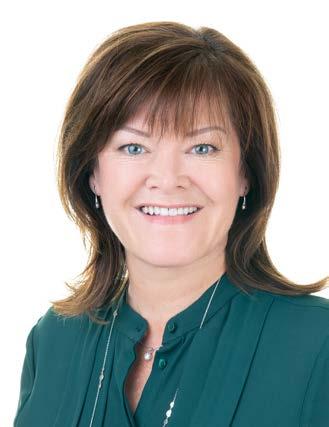
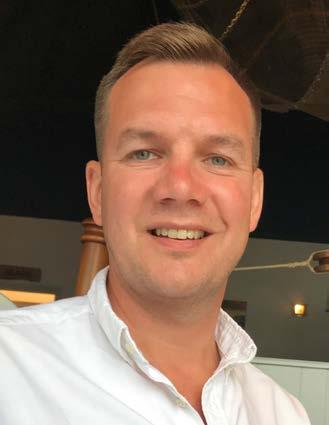

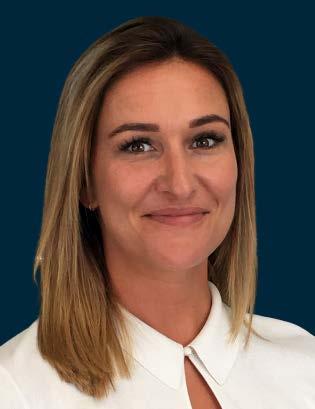
welcomed. In Kier especially, we have a broad range of diversity at SMT and people regardless of background, age, gender, ethnicity, or any other characteristic are given a fair crack at succession!
Can you reflect on any positive changes or trends you’ve seen in the rail industry regarding diversity and inclusion, and how these shifts have influenced the way you approach leadership?
Dan Hutchings: Kier is leading the way with respect to inclusive policies for everyone in construction, with our wide range of family friendly policies, supporting employees experiencing pregnancy loss or menopause, and making period care products available for free at all sites, depots, and offices. In addition, we are seeing prayer rooms being allocated as standard which are frequently used by the personnel working on our projects and in our offices.
The policies which have been put in place have made me feel much more comfortable to address topics in the office which may have previously been seen as taboo, such as menopause and pregnancy loss, and this has been reciprocated by a number of employees I work with.
Riana Hattrell is a talented graduate civil engineer, currently working on our Oxford Station project. Already, she’s managed to inspire and encourage new people into our industry through her creative ideas and characters in her book, The Build It Family – Sammi on site.
As a writer within the CECA NextGen team who created the twice award nominated book Sammi on Site, can you tell us a bit more about the story and inspiration behind it?
Of course! Sammi on Site is a book which follows a digger Sammi while they go about their day on a construction site. The adventure touches on basic engineering principles, environmental and sustainability basics, and an early insight into the variety of job roles within the industry. Sammi on Site was created as an educational tool to demonstrate what the construction industry encompassed, which is so much more than what meets the eye, with the books main aim to inspire the next cohort of individuals into the industry.
Sammi is a gender-neutral character, how did the team come to this decision and why?
I decided to go to with the gender-neutral theme for the main character Sammi, because I would like the children reading the book to decide who they want Sammi to be. The main purpose of the book is to educate the reader about the industry and what encompasses it, the gender-neutrality of the character engages the imagination of the reader and gives the highest chance for Sammi to be relatable to anybody who reads it. Overall, the book wants to promote inclusivity to all to reflect that the industry is the same.
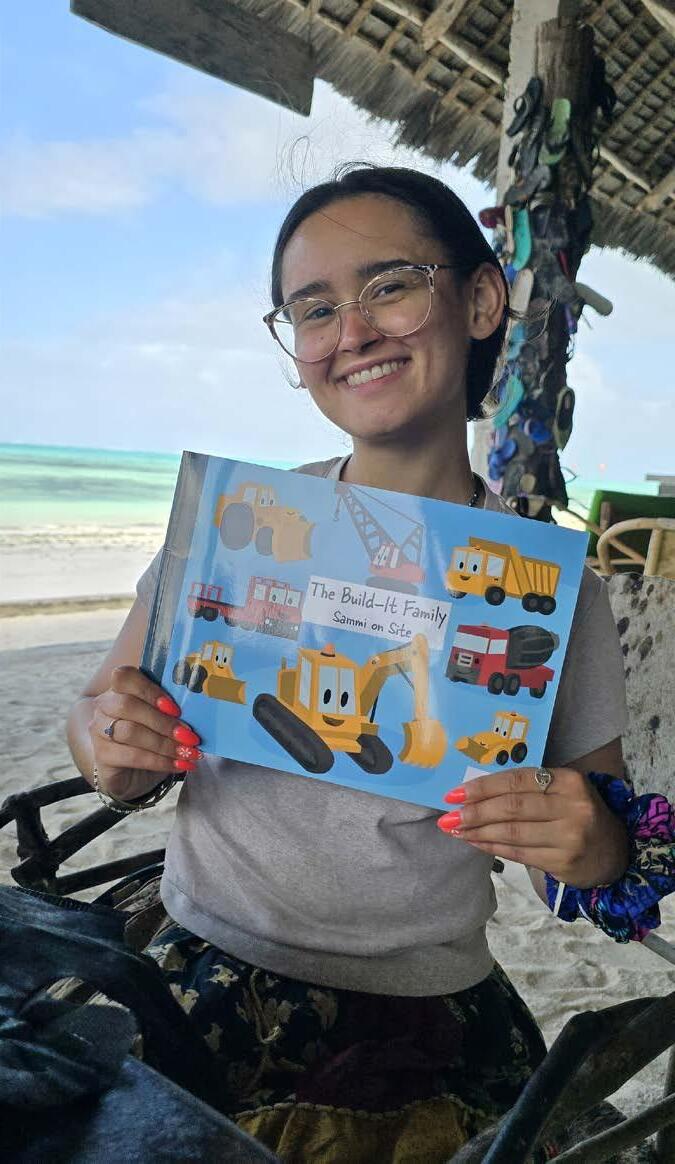
What makes you most proud to work in this industry?
That’s simple, the people. I feel that you increase your knowledge ten-fold the more that you speak to different people. Everyone has a story, a little anecdote or something that they specialise in, which is really interesting to listen to. I mean, the storyline of this book was inspired by my own anecdotes!
Alongside Kier Transportation’s commitment to inclusion, development, and fostering a space where all employees can thrive, we are striving to attract talent to our industry.
Alongside Kier Transportation’s commitment to inclusion, development, and fostering a space where all employees can thrive, we are striving to attract talent to our industry. Through Kier Pathways, our framework of programmes providing routes into rail and other infrastructure careers, we are providing young and vulnerable people in our communities with skills and opportunities, increasing awareness and promoting our sector within schools, colleges, and universities, and making Kier Transportation the employer of choice for career returners. By opening up our industry and committing to continued improvement in EDI we hope to empower many more individuals to become leaders and change makers within Rail.
One of the most important and impactful EDI activities the Global Centre of Rail Excellence team have been involved in this past year is through our work with schools and the young girls and boys living near to our site.
Over the last twelve months GCRE has collaborated with the not-for-profit organisation Primary Engineer to bring engineering into the classrooms of thirteen local primary schools.
Linked to the Curriculum for Wales, the fully funded programme has facilitated training to primary school teachers and delivered a tailored engineering project to young people in the classroom.
The project encourages young people to take an interest in Science, Technology, Engineering and Mathematics (STEM) subjects by making model rail vehicles and learning more about the local GCRE development. A particular focus is to encourage greater diversity in engineering and attract more girls to get interested, hopefully with rail being a future career path.
As part of the programme, pupils worked together to build working model rail vehicles, which were then put to the test at a celebration event, so each team of pupils could highlight the skill, creativity, and problem solving achieved during the programme.
An impact report published recently has shown that 788 young people in primary schools around the site took part in the project, and 92% of teachers reported an increase in their understanding of engineering following the facilitated training. Furthermore, 85% of teachers reported a better understanding of the diversity challenges in engineering, which helps to create an inclusive and enriching learning environment for future students.
What has been fantastic to see is the innovative creations and enjoyment from taking part that the young people in the area have got from going through the programme.
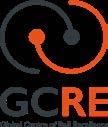
They got a taste for engineering, and the STEM skills that are fundamentally needed to develop the railway of the future.
This initiative will help to encourage and raise their aspirations, supporting them to acquire transferable skills that GCRE and the wider rail industry needs– problem solving, critical thinking, resilience and teamwork. To see such a diverse range of young people from different backgrounds taking part has been incredibly satisfying to watch.
That impact cannot be underestimated. In an area of the South Wales coalfield where deindustrialisation has hit hard, economic inactivity is high, with limited job opportunities, we cannot undervalue just how important GCRE is to the region and to helping regenerate the area.
GCRE is a development that will not only help offer to all high quality, rewarding and well-paid STEM-based careers, but also allow those opportunities to be accessed locally, meaning more can make the choice to stay in the communities in which they grew up, if that’s what they want to do.
For GCRE, the Primary Engineer programme is one of the first steps we have taken to engage with young people, through local schools as part of our commitment to the EDI charter. We have learned a lot – and will be able to embed that knowledge into future projects to maximise our impact. Its central to our four missions for the wider GCRE development – to rebuild local prosperity; to make transport better; to pioneer a net zero railway and to renew an amazing place.
We know just how talented and how creative young people can be, and those living in the valleys around GCRE just needed the opportunity to shine and show off that talent.
We hope that GCRE can be one avenue in which that can be done and would encourage others to get involved.


At LNER we believe that a diverse and inclusive workforce, that is representative of the communities we serve, is key to attracting, retaining, and developing world class people. To make meaningful and sustainable progress towards true equity, we know we must turn the dial and challenge some of the norms that have become inherent in the railway. But it’s not just about creating an inclusive culture, it’s also about supporting everyone to achieve their full potential including those who don’t typically fall within the usual railway stereotypes.
Our EDI strategy is now well underway, with the appointment of a dedicated team which is working with the business to deliver the strategy. To date Tracey Barber, Senior EDI Business Partner and colleague Craig McNally, have worked with business leaders to develop understanding of the wider benefits of a diverse workforce. A true champion of others, Tracey leads by ensuring she raises the voices of others. There has been a focus on reviving LNER’s main employee inclusion network – Being You. This required a tough decision at the time – closing existing employee networks. It could have appeared as a backwards move, but believing in the power of employee voice, the team set about concentrating efforts on building belonging. Going from no active contributions to a thriving community empowered to act themselves, colleagues have now created their own identity-based networks: Together (LGBTQ+), Empower (women), Elevate (ethnic minorities), Nurture (caring responsibilities) and ManKind (men).
discourse through diverse initiatives like virtual forums, group walks, and providing resources for identifying mental health indicators and available support services from both LNER and external sources.
Under no illusion of the challenges faced, the team has worked to ensure there is something for everyone, providing an opportunity to create change. Anyone –whatever their background/ identity – has a network to join and LNER now has many champions for EDI speaking on issues which are both personal to them and as allies. This is more powerful than any corporate spokesperson.
Our Package for a Friend initiative is another industry first, providing period products on-train, in stations and at our offices. This evolved from a discussion with a frontline manager to a reality in only months.
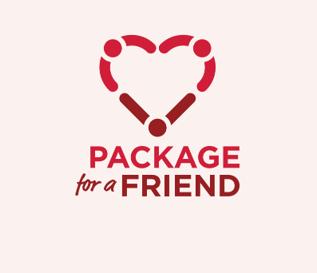
It’s about supporting everyone to achieve their full potential including those who don’t typically fall within the usual railway stereotypes.
James Gossage, Co-chair of Mankind said “The EDI Team has really engaged, empowered and inspired frontline colleagues to find their voice, become champions and make a difference through the networks. Seeing a gap, Tracey encouraged my idea of a safe space for men to engage in discussions on mental health without fear of criticism. We now endeavour to dispel silence and promote
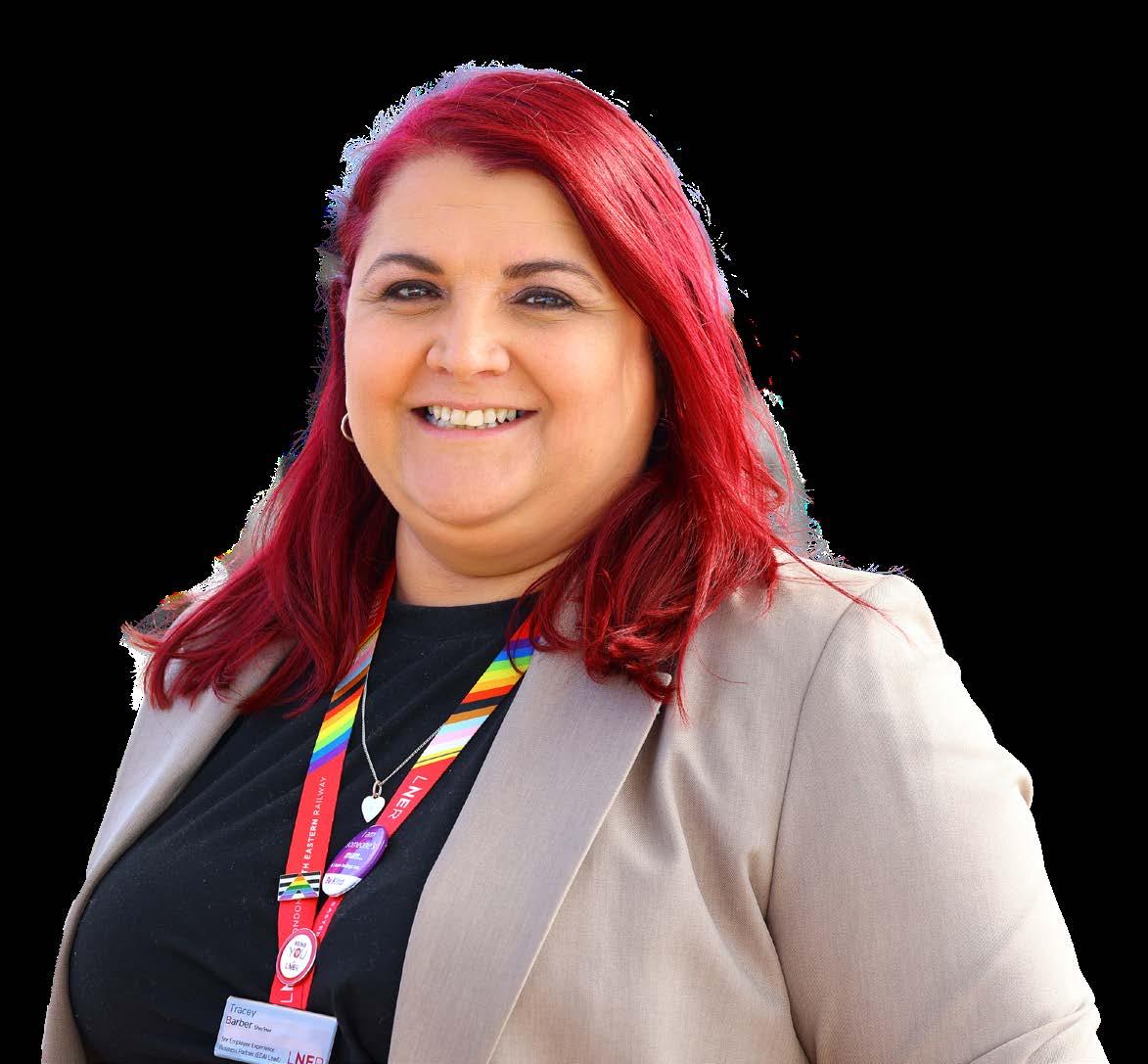
Tracey Barber said: “Not only does having period products available reassure customers and colleagues, but it also highlights the inequities and discomfort that can be faced by people who menstruate. We are now working with other train operators to help them launch similar initiatives. We have received lots of feedback, perhaps the most moving was from a customer experiencing a miscarriage onboard, who felt able to approach a male train manager
Tracey has recently taken on being Chair for Women in Rail South region. Her passion shines through in ensuring women in the industry can thrive. At LNER 43 per cent of the workforce are women but Tracey won’t rest at that. She strives to challenge and disrupt the industry thought processes to foster a more inclusive place
Looking ahead, focus for the next 12 months will see a dedicated EDI action plan, covering all areas of the business, driving positive change for current and
Alstom is the UK’s leading supplier of new trains and train services, and a major signalling and rail infrastructure provider. In 2024, the company has made great progress in further fostering EDI within the rail industry.
Through bold initiatives, both in their internal company culture and in public-facing projects, Alstom’s actions are aligned closely with the RIA’s EDI Charter for Rail. Their achievements reflect not only a commitment to embracing diversity but also a dedication to building a more equitable environment for all employees, stakeholders and passengers. Alstom’s vision for 2027, as outlined in their EDI Strategy and Action Plan, promises even greater strides in creating an inclusive and diverse workforce for its 6,000-strong staff in the UK and Ireland.
Nottingham ‘trambow’
One of the most visible examples of the company’s commitment to diversity came with the introduction of Nottingham’s ‘trambow’, an Alstom tram emblazoned with a vibrant rainbow design that celebrates LGBTQ+ pride. This collaboration with Nottingham Express Transit (NET) and East Midlands Railway (EMR) was timed to coincide with Notts Pride in July 2024. The rainbow design symbolises more than just participation in a community event – it represents Alstom’s commitment to supporting the LGBTQ+ community year-round.
The ‘trambow’ is an embodiment of Alstom’s values, with the message ‘Ride with Pride’ serving as a public invitation for passengers to embrace diversity and inclusivity. The tram’s routes cross key intersections with other transport networks, reinforcing the broader message of inclusivity beyond the rail industry and promoting a public system that welcomes everyone.

This collaboration reflects Alstom’s broader commitment to supporting marginalised groups in society, both inside and outside the workplace. Alstom employees also participated in the Pride in London Parade alongside Micro Rainbow, further demonstrating the company’s advocacy for LGBTQ+ inclusion at both a corporate and a community level. Later in the year, colleagues also proudly marched in the Notts Pride and Derby Pride parades.
Alstom’s vision for 2027, as outlined in their EDI Strategy and Action Plan, promises even greater strides in creating an inclusive and diverse workforce for its 6,000-strong staff.
Alstom’s Voices of Pride+ employee network, founded in 2018, has played a crucial role in ensuring that LGBTQ+ staff feel supported and empowered within the organisation. The network enables employees to champion diversity and equality – creating a welcoming environment where all individuals can be their authentic selves – and is echoed by the three other ‘Voices of’ groups that centre around Cultural Diversity, Disability and Women. All four networks help to share lived experiences, challenge groupthink in its strategy and policies, have oversight of relevant key performance indicators (KPIs) and act as company ambassadors.
Alstom also partnered with Micro Rainbow, a charity that provides housing and socio-economic programmes for LGBTQ+ asylum seekers. In March 2024, Alstom hosted an employability skills workshop in Derby, offering asylum seekers an introduction to UK rail employment, mock interviews and CV preparation.

Recent initiatives by Voices of Women, for example, have seen free period care provided in all female toilets, which will soon be expanded for all shared facilities.
Alstom’s achievements in EDI were recognised at the 2024 Women in Rail Awards, where they were honoured with two group awards – the Equality, Diversity and Inclusion Team Award and the Social Value Award – and were also Highly Commended for their bespoke female development programme, ‘Springboard’.
In 2017, Alstom launched its biennial EDI census to identify improvement areas in the UK and Ireland. From the findings, Alstom has implemented widespread EDI training that was attended by over 2,100 employees across the UK and Ireland during the last year. Furthermore, it has taken its ‘Be the U in inclUsive’ roadshow to the majority of the company’s 37 sites across the two countries and has
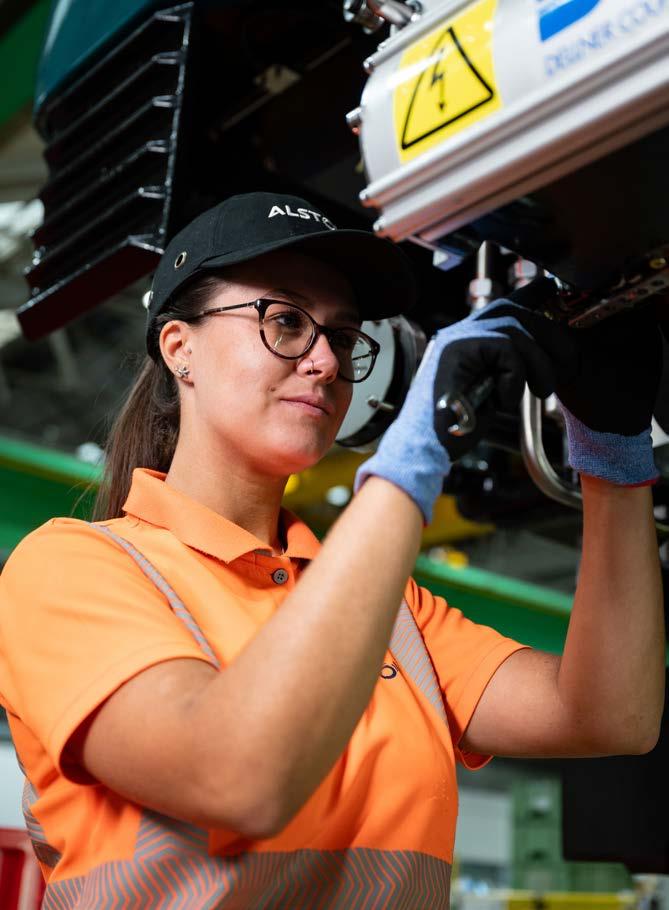
demonstrated improvements in increasing the number of female employees.
In line with its focus on promoting gender equality, Alstom launched the InspiHer initiative, which aims to encourage young women to pursue careers in the traditionally male-dominated rail industry, as well as wider science, technology, engineering and mathematics (STEM) fields.
On International Women’s Day 2024, Alstom hosted female students – primarily in Years 7 and 8 – from 26 schools at 25 of its UK sites for a series of interactive sessions in partnership with Angel Trains and Avanti West Coast. At each site, colleagues showcased to pupils the diverse range of rail-related roles available.
Similarly, Alstom’s Corporate Social Responsibility team have been working hard to widen participation among underrepresented groups and showcase the rail industry as a viable career option to those with protected characteristics. For example, in collaboration with HS2 Ltd, Alstom hosted an insight day for students from the Ealing SEND Hub at its Old Oak Common depot in West London in February 2024. The event was tailored to the needs of students with special educational needs and disabilities
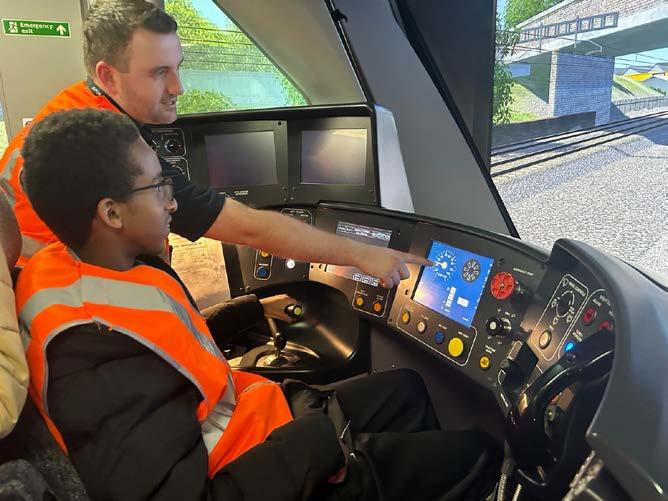
(SEND), offering them opportunities to engage with Alstom employees through interactive, hands-on activities.
The company also hosted an employability day for Hillingdon Autistic Care & Support (HACS) at the same depot. In fact, HACS were one of ten charities and community-led projects across the UK and Ireland that shared more than £140,000 as part of Alstom’s 2023 Community Project Fund (CPF). Alstom employees are also being encouraged to use their annual volunteering day to offer additional support to the beneficiaries.
and adoption policy
Alstom took another major step forward in promoting workplace equality with the introduction of a new maternity and adoption leave policy in September 2024. The policy offers 12 months of fully paid leave for employees, setting a new standard for the industry.
This initiative is particularly important in promoting gender equality, as it enables women to pursue their career goals without sacrificing family life. By offering such extensive support to parents, Alstom not only empowers women but also fosters a more family-friendly and inclusive workplace for all employees.
Alstom also offers enhanced support for colleagues experiencing menopause, with a comprehensive Menopause Plan offered at no extra charge through the company’s Bupa cover. Furthermore, employees can now reclaim the cost of a Hormone Replacement Therapy (HRT) Prescription Prepayment Certificate (PPC) through expenses.
An inclusive leader in rail
Alstom’s EDI initiatives and policies demonstrate its commitment to fostering a more inclusive rail industry.
“From the moment I stepped onto an Alstom site, I was welcomed not just as a professional, but as an individual. As a gay man, I experienced first-hand the inclusivity and openness that Alstom champions, and it has made all the difference in my first year here,” said Ben Goodwin, Alstom’s Director of Communications for the UK and Ireland, and cluster EDI Champion.
“I firmly believe that a diverse and representative workforce at all levels is crucial for maximising both team and business performance. When people feel empowered to bring their true selves to work, we unlock the unique strengths and perspectives that drive innovation and success. At Alstom, we are committed to fostering an inclusive and equitable workplace where every individual’s contribution is valued, and where diversity is fully integrated into our culture.
“As we look forward to 2027, our Equality, Diversity and Inclusion Strategy and Action Plan aims to enhance this inclusivity even further. By embedding diversity into our talent pipeline, succession planning and leadership development, we are dedicated to eliminating discrimination and continuing to build a workplace that reflects and respects the diversity of the world around us.”
Alstom’s efforts are shaping a more inclusive future for the rail sector, ensuring that it becomes a space where everyone can thrive and ride with pride.
Last year during National Inclusion week Northern launched a new EDI strategy with a brand-new vision: to trailblaze in developing an inclusive business where colleagues perform at their best and are the best. The three main areas of focus in the strategy are women, men and ethnic diversity. Based on feedback from our colleague surveys, we know that men can sometimes feel excluded or overlooked when it comes to EDI, so our new strategy aims to address that and help increase men’s sense of belonging at Northern.
Northern has a full EDI calendar of events that runs throughout the year, and some of the initiatives supporting the EDI strategy include a month-long celebration of women in March called ‘Go Do Her Thing’ and the same for men in November called ‘Go Do His Thing’. In addition to celebrating International Women’s and Men’s Days, we have had listening sessions with both groups, panel events, and specifically for men we entered into a partnership with Andy’s Man Club, a men’s mental health and suicide prevention strategy. The introduction of lanyards with Andy’s Man Club and Northern branding have been particularly appreciated by male colleagues.
Northern is patron of the Multicultural Apprenticeship Alliance to attract young candidates from ethnic backgrounds to Northern, and all our vacancies are advertised on their website. We have also launched our first ethnic diversity colleague network to provide professional network for colleagues and allow them to talk about their employee experience and how it could be improved.
Another strand of our EDI strategy is Brilliant Data and Insight. In addition to our annual colleague survey and pulse survey (with a new colleague survey platform from Inpulse which provides the best insight we’ve ever seen from colleague surveys), we have introduced starters and leavers surveys to capture feedback on the stages at either end of the employee journey. Also, we have launched employee experience interviews specifically for women so that we can understand their unique challenges

working in a male-dominated work environment and the data will be used to help improve female retention rates. Taken together, this data has given us valuable information on the lived experience of different demographics of our workforce and has driven insight led initiatives in the business (for example, improvements to our recruitment and leavers processes).
This year we have appointed Chairs and Vice Chairs for each of our employee networks to make them more colleague-led and to address the issues that really matter to them. Our groups include Northern Women, LGBTQ+, Armed Forces volunteers and neurodiversity. Their vision is to create a workplace environment that fosters a culture of everyday inclusion for everyone, every time and in everything we do.
We have also refreshed our family friendly policies this year to better support our colleagues when starting a family and celebrate parents in the workplace. We have introduced neonatal, fertility and pregnancy loss leave for all colleagues, regardless of gender. We recognize the role that men play in family life and our new policies demonstrate our commitment to supporting them.
We have become patrons of the Multicultural Apprenticeship Alliance to attract young candidates from ethnic backgrounds to Northern.
In addition, we also launched a dedicated hub on our intranet site for intended and current parents plus a separate management hub to provide line managers with helpful support, bite-size guidance and additional documents to enable them to support colleagues during this exciting time of their journey.
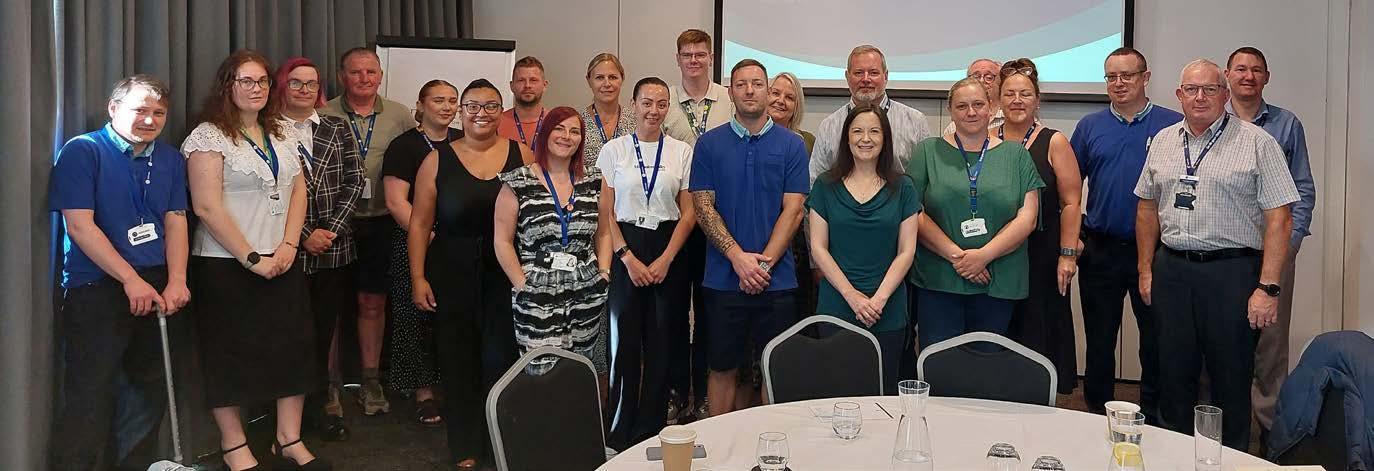
QTS Group is working hard to improve equality, diversity and inclusion across all departments and introduce processes and working practices to allow people, regardless of gender, race, identity or background, to feel comfortable bringing their whole selves to work.
This work is ongoing but over the past 12 months has included steps such as, the creation of an EDI forum which ensures all divisions and roles within the business can have their voices heard. With 17 members from across the Group acting as EDI Ambassadors, reporting into our EDI Working Group and providing input at our quarterly EDI meetings, a lot of effort is being put into to ensuring these voices are heard.
attendance at key events and creation of work experience placements for leavers, as well as the work we do with our own Service leavers, military spouses, reservists and cadet volunteers.
We are committed to investing in building a team with a diverse range of backgrounds, skills and views. We know diversity drives success, so we are building a culture where difference is valued, and everyone is welcomed
One particularly important outcome from the Forum was our EDI mission statement – Diversity & Inclusion : Bring Your Whole Self to Work – this reads: “QTS is on a journey to ensure we are embracing diversity, equality and inclusion in a serious way. We are committed to investing in building a team with a diverse range of backgrounds, skills and views. We know diversity drives success, so we are building a culture where difference is valued, and everyone is welcomed.” Having this mission statement publicised throughout our organisation keeps our focus on achieving our EDI goals and makes us accountable to our team members.
QTS also works closely with Women in Rail and the Armed Forces Covenant, and has developed training courses with a focus on diverse recruitment and progression, in order to pull from as many resources as possible when looking at management and leadership. Two directors, Lorna Gibson (Training Director) and Lisa McKellar (Marketing and Social Value Director) engage with Women in Rail Scotland directly, as Chair and Steering Group member, respectively. This allows high-level discussions to take place based on the work done with Women in Rail. The creation of an Armed Forces Champion, Jane McFadzean, has allowed QTS to engage more with the Forces community. Most recently, QTS gained the Silver Employer status through
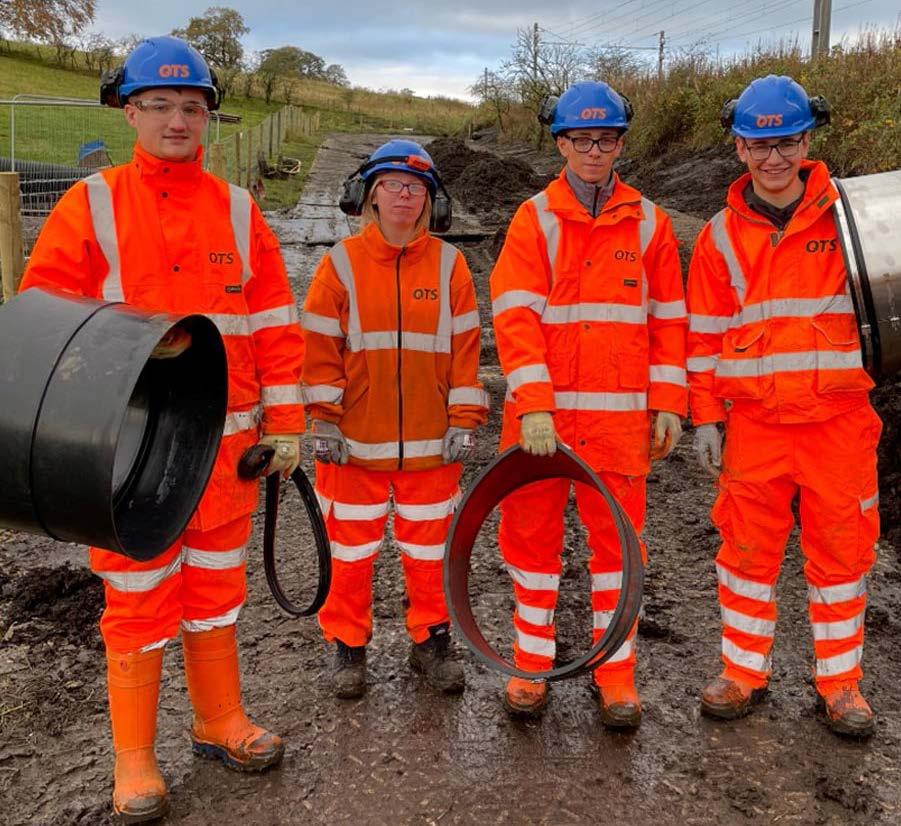
Providing young women with structured work experience opportunities at QTS has allowed them to view the company and industry in a new light, gaining a better understanding of what jobs really are available and the different pathways into these. Evie Lightburn and Daisy Pollock both spent a week, each working with a variety of teams at QTS, including visits to sites, where they learned about the opportunities available in the railway. Daisy gave feedback saying:
“It has given me a great insight into everything that QTS do and all the stuff that goes on in the background.
“Before I had my work experience I was interested in quantity surveying but I have now set my sights on becoming an estimator within the rail industry. So many people gave up their time to give me an insight into their department and I’m really grateful.”
Following participating in the award winning QTS Rail Skills Academy programme, Chantelle Nisbett found her skills lay with the workshop team, something not generally opened to Skills Academy participants, and so arrangements were made to allow her time to develop her skills there. Chantelle now works full-time in the workshop and feedback from staff who work with her has been exemplary.
Eighteen-year-old Kya McTaggart joined our civils Scotland team for two weeks of work experience in late 2022 and has gone on to join them full-time as a trainee operative. Kya has been flourishing in her role, impressing managers and supervisors with her enthusiasm and dedication.
Changes have recently been made at the QTS HQ in order to make it a more inclusive office. The introduction of a Multipurpose Quiet Room, converted from a meeting room, has allowed those in need of it, a private place with a locked door, whether this be for prayer, personal medical purposes or just a quiet time. The room has recently been used by one member of staff as a space to breastfeed and express milk after returning from maternity leave.
As well as this, our home and flexible working arrangements have been further extended past the maternity leave period for new mothers to allow for an easier transition when returning to work.
All of these initiatives and more have allowed QTS to become more inclusive overall. However, we recognise there is still work to be done with regards to gender balance and diversity and inclusion in general. We will continue to work towards becoming a completely inclusive and equitable workplace.

The Great British Railways Transition Team (GBRTT) has been working hard to influence and facilitate integration of the rail industry into the unified body that will become Great British Railways. A key part of this effort was about embedding a diverse and inclusive culture across the industry, both now and in the future. Leading this initiative have been Industry Inclusion & Belonging Leads, Apeksha Naik and Odis Palmer, who amongst the work they are doing, have spearheaded a GBRTT funded programme called ‘Next Stop – Your Future’. Launched in September 2024, this nine-month programme has been tailored for non-managers from underrepresented groups across the industry. “The programme focuses on developing non-managers from underrepresented groups, involving participants with a range of lived experiences, ensuring diverse representation across the railway,” Apeksha commented. “We are proud to include learners, managers, mentors, and executive sponsors from over 20 industry organisations, including train operators, Rail Delivery Group, and Network Rail, making this a truly industry-wide initiative.” Odis added, “The programme will equip learners with new skills and experiences, enabling them to bring positive change within their teams and across the industry.” At the launch, GBRTT Lead Director Rufus Boyd reflected, “This programme is part of a broader cultural change in the sector that I care deeply about. If we are to fulfil the government’s expectations of the railway, programmes like this will significantly contribute to our collective success.” As part of engaging senior leadership on inclusion and belonging initiatives, Odis and Apeksha have developed ‘Dialogue Sessions’ – another innovative tool to embed more inclusive communication across diverse groups of stakeholders. These sessions amplify the voices of those who might not always be
The programme will equip learners with new skills and experiences, enabling them to bring positive change within their teams and across the industry.
fully considered in decision making spaces. “Our aim is to embed dialogue sessions across the industry, and we have already introduced the concept at RDG, areas of Network Rail and with some colleagues at DfT. We are currently working with partner organisations that are involved in the Next Stop – Your Future programme to embed the approach.” Dialogue sessions were first introduced at StratCo, GBRTT’s monthly Directors’ meeting a year ago. Odis explained, “The dialogue sessions aimed to ensure that inclusive behaviours at GBRTT positively influenced our relationships with key stakeholders. These sessions aligned with StratCo’s commitment to bring diversity of thought to the Senior Leadership Team by helping leaders better understand their people, increase diversity of ideas, and foster innovative solutions.” A clear distinction is drawn between ‘dialogue’ and ‘discussion’. Discussions tend to focus on actions and outcomes, often leaving little space for diverse ideas, especially from underrepresented voices. Dialogue, by contrast, encourages inquiry and learning, allowing for assumptions to be examined and creating time to think. Over the past year, Odis and Apeksha have been leading dialogue sessions on various topics at GBRTT, bringing in colleagues who offer perspectives not typically heard at a senior level. For example, an early session featured a neurodivergent colleague and another who speaks five languages (English not being their first), both discussing their experiences with communication and engagement within the business, highlighting successes and areas for improvement. Following the success of that dialogue session, senior leadership embraced the approach, agreeing that these sessions continued and were applied in meetings outside StratCo.



As a member of the LGBTQ+ community, I transitioned into the construction industry after a long career in retail with some initial nervousness. However, the inclusive culture at KISL enabled me to be my authentic self. This environment supported me in progressing into my current role, where I now have the privilege to influence and drive further change. As the Head of People Operations, I am passionate about embedding EDI into the core of everything we do. Our commitment is not just about policy it’s about developing a culture where diversity is encouraged and every individual feels valued. My role centres around driving this change across Recruitment, Learning & Development, and broader people strategies. Below are some of the initiatives we have in development to continuously improve our commitment to EDI.
We are launching our EDI Toolkit to serve as a critical resource designed to equip our teams with the knowledge and tools to foster inclusivity at every level. It includes modules on unconscious bias, inclusive communication, and practical steps for creating a welcoming environment for all employees. The toolkit is designed to be a living resource that grows and evolves with our understanding of EDI, ensuring that we stay at the forefront of best practices. This initiative empowers our managers and employees to take active roles in driving inclusion and diversity within their teams.
We believe that our employees are the best advocates for KISL’s values. That’s why we have an EDI committee, chaired by our Support Services Director, myself and supported by a dedicated team of EDI Ambassadors. These ambassadors are responsible for championing EDI initiatives across the business, encouraging an inclusive workplace, and raising awareness of diversity. They play a pivotal role in communicating the company’s EDI goals, identifying areas for improvement, and ensuring that every employee feels valued and respected. EDI Ambassadors are selected based on their passion for inclusion, their understanding of diverse perspectives, and their ability to positively influence others.
At KISL, we recognise the challenges that come with relocating for work, especially for international employees, and are committed to attracting and supporting global talent. To support our sponsored workers, we’ve developed a Sponsored Worker Relocation Pack.
This initiative provides holistic support that goes beyond logistics, offering guidance on settling into a new country and culture. The pack includes assistance with housing, school placements for children, and local area insights, ensuring that workers and their families feel welcome and supported from day one.
We firmly believe that neurodiversity is a key component of an inclusive workforce. To support this, we have implemented Neurodiversity Training across all teams. This training aims to raise awareness about the different forms of neurodivergence, and how we can adapt our work environments to better support neurodivergent colleagues. By training our teams to recognise and appreciate the unique strengths that neurodiverse individuals bring, we create an environment where everyone, regardless of cognitive differences, can thrive.
In line with our focus on employee wellbeing, we’ve recently updated our Menopause Policy, and are initiating a dedicated Menopause Support Group. This initiative will be designed to provide comprehensive support to employees experiencing menopause and extended to their family members. We’ve also rolled out menopause awareness training to help employees and managers better understand the effects of menopause and how to support those going through it. Our in-house health and wellbeing team provides access to multiple support networks, ensuring that no one has to navigate this journey alone.
We believe that collaboration is key to advancing EDI, which is why we’ve strategically partnered with organisations that share our vision to help us promote career pathways for individuals from disadvantaged communities, and build a diverse pipeline that reflects society. We’ve formed partnerships with Springpod, Choices College, and NHS
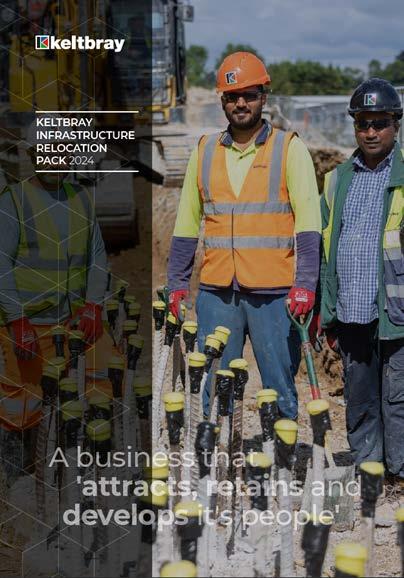
England to create opportunities for individuals from underrepresented backgrounds to explore careers at KISL. These partnerships enable us to educate and engage a broader range of talent by offering insights into our industry and the roles we have available.
In conclusion, promoting equity, diversity, and inclusion (EDI) is both an ethical responsibility and a key driver of innovation and growth. By welcoming diverse perspectives and removing barriers, we are creating a positive environment that benefits everyone at Aureos Infrastructure Services Ltd and I am proud to be part of this.

We are committed to fostering a workplace where everybody belongs – and they are valued, supported and empowered to participate and contribute fully. Earlier this year our Disability Network (ERG) prioritised support for neuro-inclusion. This came from recognition that there are specific challenges faced by neurodiverse individuals in the workplace, such as differing information processing styles and the potential stigma surrounding conditions like autism, ADHD, and dyslexia. Of course, we also recognise that differences make us stronger because diverse teams bring new ways of thinking which drives innovation.
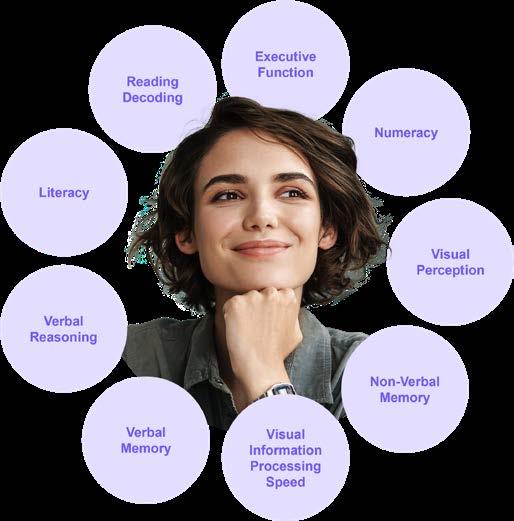
For our pilot project we partnered with Cognassist, an organisation specialising in neuro-inclusion, to enhance our approach to supporting neurodiverse people and creating a more inclusive environment for all. It was a natural extension of our existing partnership with Cognassist to support our apprentices.
Our partnership with Cognassist has two primary objectives:
1. To raise awareness of neurodiversity and promote neuroinclusion across the organisation.
2. To make a meaningful difference for neurodiverse individuals and their teams by equipping our people with the tools and understanding necessary to support each other effectively.
Our first step was training managers and neuro-inclusion champions within the pilot teams. These champions play a crucial role in supporting neurodiverse people by providing a safe and confidential space for discussions that may not always feel comfortable in manager-employee settings.
According to Lucy Davis, who is both a Champion and project managing our pilot, these Champions help to reduce the stigma around neurodiverse conditions. Champions are invaluable in enabling open and honest conversations, offering people a trusted resource and ultimately building a culture of inclusivity, support and helping our people feel valued.
Training for all participants followed and so far, 88% of the pilot group now have access to their unique cognitive map and are working through tailored online training and suggested tools and techniques to support with their work activities. Discussions between individuals and their manager to review areas where they excel, and any areas where they may benefit from strategies, are a key element to this.
The partnership has already shown positive benefits such as:
• Increased Awareness – Raising awareness about the experiences of neurodiverse people helped to break down barriers and improve understanding within teams. There have been some great a-ha moments in conversations among colleagues!
Enhanced Communication – Team members and managers gained insights into how their colleagues process information, enabling more effective communication and collaboration.
Skill Development – Training helped to identify and support neurodiverse individuals more effectively, which improved overall team dynamics. Techniques and adjustments can be surprisingly simple and effective.
Lucy has benefitted personally “this has been pivotal in improving the way I work. It recommended strategies to improve my executive function (including planning, monitoring and solving problems).
After discussing strategies with my manager, the recommendations triggered the concept of ‘deep work’ – not just for me but also for those in my wider team. With the support of our manager, we now take opportunities to go on “do not disturb”, use headphones to drown out external noise, and colleagues are encouraged not to distract us. This allows us to concentrate on and complete complex tasks without feeling excluded, as the whole team adopts this new way of working.”

These benefits have not only impacted individuals participating in the pilot, but also contributed to the overall productivity and engagement of teams within Siemens Mobility.
Our next phase of the pilot will be to survey all participants to measure achievements against our objectives and consider the scope and timings of a broader roll-out.

As signatories of the Women in Rail EDI Charter, VolkerRail has been on a journey to drive improvements across the business and raise awareness and understanding of equality, diversity and inclusion with its employees.
Throughout 2024, we continued to build a strong network of fairness, inclusion and respect (FIR) champions, who all share a passion around FIR and regularly engage with activities and events to help embed our aim for everyone to feel included, valued and free to be their authentic selves.
In 2024, a key area of focus for us has been neurodiversity – understanding its impact on employees and what we can do as an employer, to help be more inclusive around neurodiversity.
We recognise the importance of understanding that not all minds receive and process information the same way, and that there are many conditions that fall under the neurodiversity banner. Our activities are all aimed at raising understanding and removing the perception of barriers through misconceptions, which in turn helps to drive up the diversity of our workforce. This includes several mental health conditions linked to neurodiversity, and our mental health champion group has also been active in raising awareness of the subjects.
As well as sharing content on neurodiversity, to raise awareness and understanding, a key objective was to also address the common myths that often serve as a barrier to people when they think of neurodiversity. We have achieved this through:
• Presentations and interactive activities at quarterly business safety step ups, as too ad-hoc events across our offices.
• Hosting students and teachers from a local autism specialist school, providing them with a platform to share their experiences and challenge the myths around autism.
• Updating our work experience policy with clear guidance for supporting individuals who may need reasonable adjustments including neurodiversity.
• The development of an employer engagement toolkit, created with input from those within our business who are passionate about autism, as well as guidance from the autism education trust to ensure that we are better equipped to offer a high quality and suitable work placement.
As well as wider campaigns and updated policies from our parent company, VolkerWessels UK, to ensure we offer further support to anyone with neurodiversity, we also recognised the potential benefits of the new neurodiversity toolkit and looked at ways to embed this into our work engagement policy, so all those who join us, whether that be for a short-term placement or 12 months, have the same experiences, learning platforms, and approach as others.
This has allowed us to provide more in-depth information to participants, removing any potential anxieties and ensuring a smooth transition into the business from a school
environment. It also created better two way engagement, allowing us to learn more about their needs and what we can do to make further adjustments for an even better experience.
To ensure our education engagement programme is as robust as possible, we created activities that are suitable for all ages and abilities, and undertake education engagement activities across a wide range of education levels; primary through to higher education and public outreach, including special education need schools and alternative provision. Each of these have been refreshed with the learnings from our employer engagement toolkit.
From our attendance at career fairs and through the delivery of STEM activities within several local schools, we have established relationships with numerous education providers whose students include those within the neurodiversity banner; working closely together to ensure that our activities, visits and work experience are suitably delivered.
We have also refined our apprenticeship assessment days to ensure we consider those who disclose they are neurodiverse to ensure that activities are planned appropriately, and observations are applied fairly. This has seen a noted increase in interaction and engagement.
There is always still more we can do, and we will continue to build on the achievements made over the last 12 months, providing further guidance and advice on neurodiversity across our workforce.
We aim to empower our FIR champions further, providing several opportunities for them to speak to the business on important topics and also aim to build on our relationships with education providers to ensure that we have a strong approach to encouraging students into the rail sector, to bring the skills gap, and work with the wider sector on campaigns that will help raise the profile of the rail industry.
The rail sector has come a long way to become much more inclusive, and we want to continue to build on that, showing ourselves as an employer of choice, with a diverse and engaged workforce that respects each other’s differences and encourages openness.
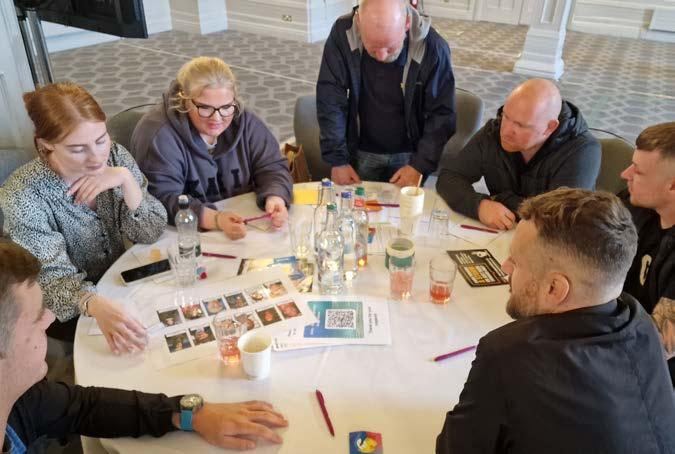

At The Hub – Transport Advisory, creating an inclusive and diverse workplace is at the heart of our values. One of the key initiatives that embodies this commitment is our ‘Bring Your Culture to Work Day’ event. This initiative provides a platform for employees to share and celebrate their cultural heritage.
Purpose
On ‘Bring Your Culture to Work Day’, we encourage members of the team to share dishes that reflect their cultural backgrounds or foods they enjoyed growing up. It celebrates the diverse cultures within our team and creates a space where staff can connect over their shared experiences, all whilst enjoying tasty food. Our colleagues to date have brought in delicious dishes including chicken biryani, a selection of Iranian snacks, Dutch pancakes and steak bakes!
Tie in with other EDI events
The initiative has been combined with other significant EDI events throughout the year, such as South Asian Heritage Month and Black History Month. It has helped to integrate cultural celebration into our daily work life, bringing it to life with food we can all enjoy together.
Providing different perspectives
Sharing and discussing cultural foods has led to conversations about traditions, values, and created a space for our colleagues to share their personal stories. Appreciating the perspectives of others has helped
develop our understanding of the different experiences we all have.
The success of ‘Bring Your Culture to Work Day’ is evident in feedback from our team:
“I loved getting to share a piece of my heritage with my colleagues by bringing in biryani during South Asian Heritage Month. More than just a lovely lunch and team bonding,
Appreciating the perspectives of others has helped develop our understanding of the different experiences we all have.
the conversations that followed allowed me to be open and honest about my culture, religion and ways of life, letting me feel truly seen and encouraging myself and others to being their whole selves to work” said Aishwarya Chidambaram, Senior Consultant.
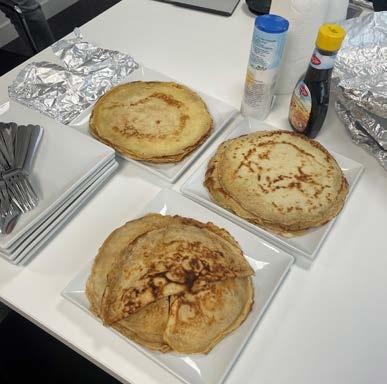
“It’s great to have so many different cultures represented in our team, and sharing food on our ‘Bring Your Culture to work’ day is a great way to connect with everyone and bring your whole self to work” shared Yasha Vojdani, Director.
“Bring your Culture to Work Day broadened my culinary horizons and gave me a deeper appreciation for the different cultural perspectives within our office,” commented Luke Clover, Principal Consultant.
‘Bring Your Culture to Work Day’ enables us to celebrate our diverse identities our commitment to inclusion. Such events will continue to play a crucial role in creating a positive workplace environment for all our team members.

Gill How has worked with the rail sector for over twenty years; her area of expertise is designing and delivering award winning inclusive leadership programmes. She has worked in partnership with Southern Railway, Arriva Trains, Rail Delivery Group, Network Rail, First Rail Holdings and Women in Rail Malaysia to mention just a few examples of her company’s client organisations.
Working with her rail sector colleagues and connections, Gill has set up an EDI Bookclub+, now about to start its third year. Open to all and free of charge, Gill organises and cofacilitates the BookClub+ with Caroline Ward, who is also passionate about EDI and offers insights from her extensive career with Arriva Buses.
The Bookclub+ meets virtually for an hour each month, offering two options, one at lunchtime and one early evening, to allow choice for those with different availability and commitments. Bookclub members discuss their learning from a wide range of sources: books, films, documentaries and podcasts, with suggestions for what to read, listen to or watch coming from the members themselves.
In the last eighteen months, we have covered a wide range of material, accepting challenge and stimulation from all directions. The most fun so far has been the film “Barbie”, and the most heavyweight read “How To Be An Antiracist”. We have covered the books “What About Men” and “Untypical”, the “Your Fat Friend” documentary, the “Gender Queer” comic book, the “Deconstructing Karen” documentary, the “Disability Visibility” story compilation and the BBC “Tackling Ageism at Work” podcasts. The range has been enormous!
The Bookclub+ is not theoretical. It focusses on our felt experience of the topic. From our groundrules, members know that every person is expected to speak and share their views – there are no spectators! Together we have created a safe place to explore our starting point on a topic, become aware of our bias, hear from others, become grounded in new perspective and enthusiastic to embody our learning. The group is a very rewarding place to be.
If this is something that you would be interested in joining, please get in touch. We are open to new members and are also looking to increase our own diversity.

Alternatively, if you are interested in setting up something similar in your own organisation, contact us. We would be delighted to share our experience with you.
Let’s use EDI Bookclubs to create change in the rail sector one new idea and conversation at a time!
www.gilllhow.com

“I joined the EDI book club run by Gill and Caroline in spring 2024, just as I was rejoining the rail sector after a short break. It has forced me to pick up books I would never have otherwise read, all of which have given me insight and caused me to pause and think. What I love most is the conversations we have about these books. Gill and Caroline have created safe and respectful environment to share thoughts where everyone’s opinion is valued equally. In doing this they have ensured vastly different viewpoints are shared, respected and deep reflection occurs. These conversations have really enabled me to develop my critical thinking skills as well as affected how I go about my work..”
Anna Carder linkedin.com/in/anna-carder-fcipd-985b596/
“The bookclub has not only further enhanced my understanding of a myriad of EDI content it has heightened my empathy and self reflection. I’m proud that it provides a safe space that encourages participants to share life experiences whilst also challenging us to be curious and thoughtful of individual differences.”

Caroline Ward (co-facilitator of the bookclub) linkedin.com/in/carolineward167/
“It’s been a welcoming environment that has allowed me to have conversations about topics that I’ve always wanted to explore but have never before found the right group or context.”
Nadine Dellaway linkedin.com/in/nadine-dellaway/

“I have been a member of Gill’s EDI bookclub since its inception in 2023. I have always been interested in this genre but the bookclub has definitely given me an added sense of accountability; helping me to prioritise reading (/listening/ watching) ahead of the group discussions. I love hearing others’ perspectives and opening my mind to different ways of viewing EDI issues and, more importantly, solutions. I’ve also benefitted from the new connections I have made through the club. Thank you, Gill and Caroline, for bringing us together!”
Jess Ellery linkedin.com/in/jessicaellery/
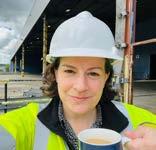
AECOM recently worked with People First Scotland to create the report, “Transport and Learning Disabilities,”. This report investigates the barriers people with learning disabilities face when using transportation systems and offers recommendations to improve their access and independence.
Summary:
The study, conducted by AECOM, highlights the significant transportation challenges faced by individuals with learning disabilities. These barriers impact their ability to access opportunities, navigate transport systems, and live independent lives. The research involved both a literature review and direct engagement with individuals who have learning disabilities to gain insights into their experiences.
The key findings:
1. Access to Information: It was found that people with learning disabilities face difficulties in accessing transport information, particularly when it is presented in complex or written formats. Digital tickets, written communication, signage, and timetables often present barriers.
2. Support from Staff: The closure of ticket offices and the reduction in in-person staff have been highlighted as significant issues. People with learning disabilities rely on staff to assist them with ticket purchases and other issues that may arise during travel, such as changes in schedules or platforms.
3. Training for Transport Staff: There is a need for improved training for public transport staff, including those working in rail transport. This would help staff to better assist individuals with learning disabilities, especially during unexpected disruptions.
1. Improved Staff Training: Comprehensive training for transport staff on the specific needs of people with learning disabilities is essential. This includes awareness of how to communicate effectively and provide necessary support.
2. Accessible Information: Enhancing the accessibility of travel information by offering simplified, easy-tounderstand materials, including non-digital formats, is recommended. Signage and wayfinding must be improved to cater to individuals with varying levels of literacy.
3. Increased Support Services: Providing more structured support, such as assistance during journeys and at key points (e.g., stations), is crucial. This may include expanding passenger assistance programs and increasing disabilityfriendly features.
4. Engagement and Participation: Encouraging the involvement of people with learning disabilities in the design and development of transport policies and infrastructure will help ensure their needs are met.
5. Policy: The report advocates for aligning transportation design and operations with the principles of Scotland’s Accessible Travel Framework and the National Transport Strategy, which emphasize reducing inequalities and improving health and wellbeing for all.
In conclusion, the report stresses the importance of removing transport barriers to promote greater independence, dignity, and quality of life for individuals with learning disabilities.
At Worldline we have 6 UNITE Pillars/Networks including our UNITE Disability and Wellbeing Pillar. The Disability and Wellbeing Pillar has 3 focus areas each with Focus Group Leads, which are Physical Conditions, Mental Health and Neurodiversity. The Pillar holds frequent drop in sessions on a range of topics, for example dyslexia, menopause, cancers that affect men, autism: a parent’s understanding.
For this annual report, our Physical Conditions Focus Group would like to celebrate that Worldline are a RNIB ‘Visibly Better Employer’ for people with sight loss. RNIB is the UK’s leading sight loss charity and in 2022 Worldline achieved ‘Visibly Better Employer’ quality standard.
RNIB have a number of specialists in the areas of Employment and Accessibility who supported us in improving our recruitment and retention practices in relation to new and existing staff who have sight loss. We worked with the RNIB to consider how our jobs are advertised, the application and interview process, IT systems and reasonable adjustments, promotion opportunities and organisation wide staff knowledge

about sight loss. As a result we introduced practices which enabled Worldline to become an inclusive employer for anyone with sight loss. Two years on and we continue to work with RNIB, with a view to attracting more blind and partially sighted talent to our workforce. We meet regularly to discuss progress and new initiatives.
To find out more about becoming a Visibly Better Employer: Visit the RNIB website: www.rnib.org.uk/VisiblyBetterEmployer
RNIB has resources and guidance on important things like eye examinations and eye safety on their website: Looking after your eyes | RNIB
To speak to a Sight Loss Advisor contact the RNIB Helpline: Tel: 0303 123 9999 (Monday to Friday 8am to 8pm and Saturday 9am to 1pm)
Email: helpline@rnib.org.uk
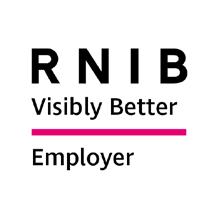
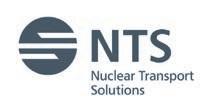
At Nuclear Transport Solutions (NTS), we believe in fostering a diverse and inclusive workplace where everyone has the opportunity to thrive, regardless of background or ability. Over the last couple of years, our partnership with Leonard Cheshire, a leading charity that supports individuals with disabilities to live, learn, and work independently, highlights this commitment. Through this collaboration, we aim to create meaningful opportunities for people with disabilities, giving them an opportunity to contribute their talent to our mission.
NTS operates in highly specialised sectors, where precision, safety, and expertise are essential. This makes our partnership with Leonard Cheshire all the more significant, as we work to challenge misconceptions about the limitations of people with disabilities in what can be seen as complex industries like ours. By creating an inclusive environment and providing the right support, we ensure that talented individuals like Joel can contribute to our success while gaining valuable skills and experiences that boost their careers. The nuclear industry needs talent and working through partnerships, we can ensure the resilience of the future of the industry.
Joel, who joined us through the Leonard Cheshire internship program, quickly became a vital part of the NTS rail business. With a deep interest in rail logistics and transport, he was eager to learn and apply his skills in real-world scenarios. Over the course of his internship, Joel took on various responsibilities, from supporting on the new health and safety campaign to providing research for a new fatigue management project. His enthusiasm and willingness to take on challenges made a lasting impression on the entire team.
“Working for NTS as a Rail Operations Intern, has been a highly supportive and engaging experience, that has involved me in key projects that will improve NTS . Through these projects I have developed, new and existing skills to assist me with my any career in the future. I would recommend NTS to anyone who is considering working there.”
Working closely with Leonard Cheshire, we ensured that our recruitment and onboarding processes were as supportive as could be for our applicants to be themselves and feel valued. We wanted Joel to feel comfortable and part of NTS, and wanted him to fully engage from day one .
impact that inclusive hiring can have on businesses, as well as the individuals involved.
At NTS, we are committed to continuing our work with Leonard Cheshire and other partners to create more opportunities for people with disabilities in the workplace. By doing so, we aim to build a more inclusive industry and demonstrate that diversity and inclusion are not just buzzwords, but vital components of a successful and forward-thinking business. Joel’s achievements are a testament to the power of collaboration, determination, and the belief that everyone has something valuable to contribute.
NTS Launches Neighbourly Platform for Volunteering: Making It
NTS recently launched Neighbourly, a volunteering platform designed to give our employees easy access to volunteering opportunities in local communities. We understand how important it is to give back, and Neighbourly makes it simpler than ever for our staff— especially those in operational roles—to find and get involved in projects that need support.
The platform is easy to navigate and allows employees to browse a wide range of community initiatives, from helping out at local food banks to supporting environmental projects or mentoring young people. For our operational staff, who may have limited time or face logistical challenges, this tool is invaluable. It provides a clear overview of nearby opportunities that fit around their schedules, making it much easier to contribute to causes that matter.
All NTS employees have five days of paid leave dedicated to volunteering each year, and Neighbourly enables us to make the most of this time by offering both in-person and virtual volunteering options. This flexibility is ideal for those working in our operational areas, where finding time to volunteer can be challenging.

Equally, Joel has helped the team recognise where NTS can do more around inclusion such as access to our rail sites. It’s brought considerations to how we’ve designed our sites as well as inclusivity to meetings and projects. Joel’s journey with us highlights the positive
With just a few clicks, employees can sign up for activities that fit their interests and availability, knowing that NTS fully supports their involvement. The platform also helps us track the impact of our collective volunteering efforts, giving us a sense of pride in the difference we’re making in local communities.
By introducing Neighbourly, we hope to empower more employees to engage with the communities around us, making it easier to give back and support those in need. Together, we can make a real, positive difference.
Interested in either story? Please reach out to Isobel. moneykyrle@ntsglobal.uk
Research and Education
The Birmingham Centre for Railway Research and Education at the University of Birmingham is a vibrant, diverse space committed to advancing equality, diversity, and inclusion under the leadership of Dr Holly Foss, who chairs the School of Engineering committee for Equality, Diversity, and Inclusion (EDI).
At BCRRE and the School of Engineering, we know that championing and building diversity and inclusion is not a task and finish one-off project, but an ongoing attitude and commitment, with projects, pitfalls, and stumbles along the way. For us, diversity and inclusion work is about maintaining a curious and compassionate dedication to learning and making things better. This ethos is at the very heart of engineering, which is why our strategic aim is to embed EDI across all areas of our work and why we are committed to developing our expertise and portfolio, particularly in research. EDI-oriented research is as much about ethos as it is about topic. And at BCRRE we are proud to harness both. Diverse and inclusive research practice ensures the who, what, how, why, and
Our programmes draw extensively from industrial expertise through guest lectures and the valued input of our industrial advisory board, which includes the EDI special interest group for impactful academia-industry collaboration and learning.
holistically capture what passengers want and create an inclusive design strategy for railway infrastructure implementation, without which the railway cannot capture the breadth of who we are as individuals. Likewise, Noodhir Sobun, PhD candidate and senior system safety engineer at RSSB is set to transform the way industry focusses on wellbeing through his work on health and wellbeing performance indicators, dashboards, and management in the railway to support the sector. Researcher Dr Joe Preece focuses on how stateof-the-art technology can build inclusion. His recent wayfinding project uses pathfinding algorithms and intuitive sensors for an augmented reality tool assisting accessibility for all. And Dr Holly Foss is set on enhancing recruitment, retention, and development for the sector through inclusive recruitment and education. Additional BCRRE projects include work on welfare facilities, such as toilets, for train drivers, rail workers, and the freight sector and the development of our inclusive events charter to be launched later this year.

results of research all celebrate EDI throughout. This means being attentive to the people involved in doing, using, and benefitting from the research, their needs, inclusion, and engagement. It means exploring the structures around the research governance, including funding, intellectual property, data, and process and contracting. And it means a transparent and supportive communications and route to market.
We are proud to be the home of a range of dynamic and innovative projects across a wide spectrum of areas. Doctoral researcher, Kim Harding is studying inclusive design and passenger experience for neurodivergent individuals. Through user-centred design and humancentred systems engineering, the project aims to
We’re also developing the next generation of engineers within postgraduate and degree apprenticeship educational programmes in railway systems, railway safety, and digital railway leadership, all of which focus on putting people at the heart of railway engineering. Our programmes draw extensively from industrial expertise through guest lectures and the valued input of our industrial advisory board, which includes the EDI special interest group for impactful academia-industry collaboration and learning. We also run regular cake and care events for all staff, reflecting the importance of open and supportive conversation around EDI to generate change.
We know EDI work is a constant process of critical reflection and development and we’re excited to be part of this.
If you’re interested in more information about BCRRE or would like to collaborate, please get in touch.


DFTO Train operating companies and Industry Inclusion and Belonging Leads on track with Global Diversity, Equity and Inclusion Benchmark (GDEIB) audit The four train operators currently comprising DFTO – Northern, London Northeastern Railway (LNER), TransPennine Express (TPE), and Southeastern – alongside Industry Inclusion and Belonging Leads, Apeksha Naik and Odis Palmer completed a comprehensive audit of Diversity, Equity and Inclusion practices, to facilitate unified sector-wide benchmarking on EDI maturity. Participating organisations collectively achieved Level 3 ‘Proactive’ status using the GDEIB (known in the industry as the EDI maturity model), with the audit being led by Diversity Marketplace. This is considered the embedding stage of EDI work. They also reached Level 4 in two areas reflecting the ‘Progressive’ stage of our EDI maturity journey. The audit contains 275 benchmarks across four groups and 15 categories, from reviewing practices and initiatives across the employee lifecycle to responsible sourcing, sustainability and marketing of the business. Each category has 5 levels, from Level 1, highlighting non-compliance with the Equality Act, all the way up to Level 5 – best practice. The audit measures progress on all diversity strands including social mobility which ensures that companies drive truly inclusive businesses. This ‘maturity model’ gave DOHL and GBRTT insight into how well we are doing in certain areas, what needs to be done to progress, and it provides an opportunity to benchmark against other rail industry operators as well as businesses outside of the industry. DOHL and the Industry Inclusion and Belonging Leads are also able to benchmark against the Rail Delivery Group (RDG) who are currently going through the same audit with
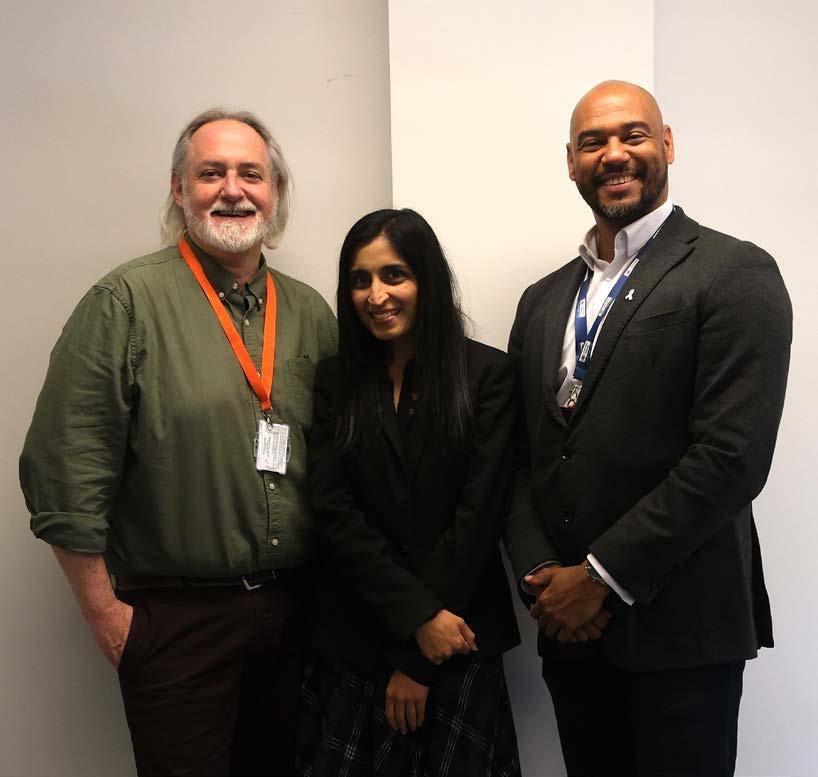
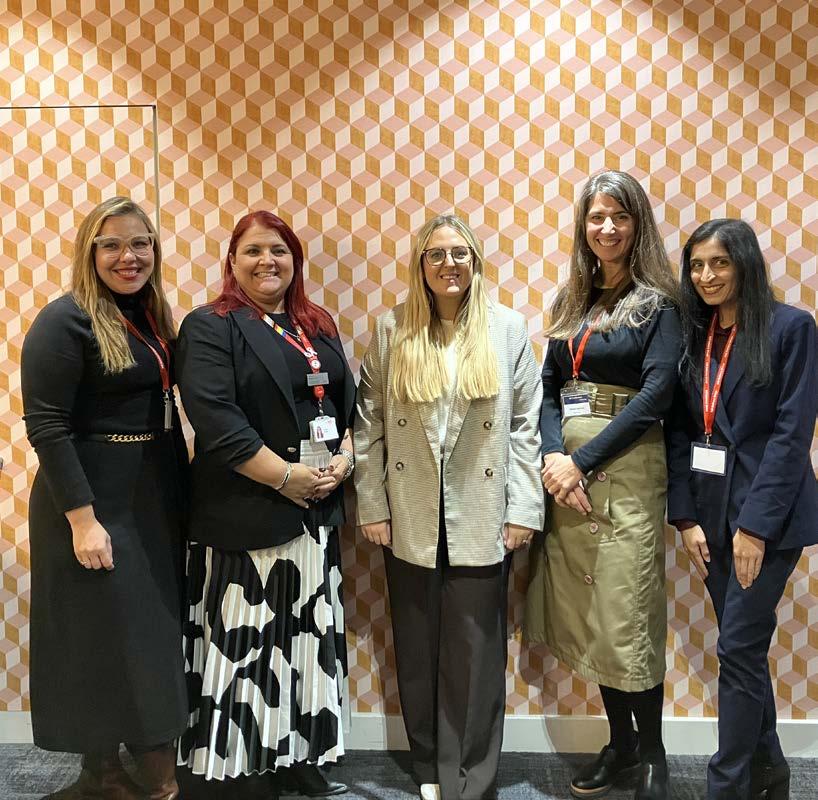
several operators, after which the results of both audits will be reviewed together to take collective action as an industry. The audit outcome reiterates the importance to fully embed EDI into everything we do. There are good EDI practices across each of the 5 organisations and therefore a collaborative approach to EDI would benefit all organisations, not only to help level the playing field in terms of where the organisation is on the maturity model but also to help them reach the next level. The process was not always easy, and whilst level 3 was a great achievement it is not something that turns the dial or differentiates from other organisations to drive better business performance or attract wider and more diverse talent. The team are combining their efforts to create dedicated action plans to trailblaze EDI in the rail industry and to drive improvements within their respective organisations. If you would like to find out more about the GDEIB (or the EDI maturity model, as it has been referred to), do contact the the individuals mentioned in this article for more information. Progress on the EDI maturity model is discussed at bi-monthly Rail Unites for Inclusion (RUI) meetings which is co-chaired by Industry Inclusion and Belonging Leads, Apeksha Naik and Odis Palmerand Dante Frederick, Deputy Chair of RUI and the DFTO EDI Leads are amongst those on the RUI Leadership team, including: Anna Wilson (Northern), Harriet Harbidge (TransPennine Express), Natalie Sparrow (Southeastern and Tracey Barber (LNER).
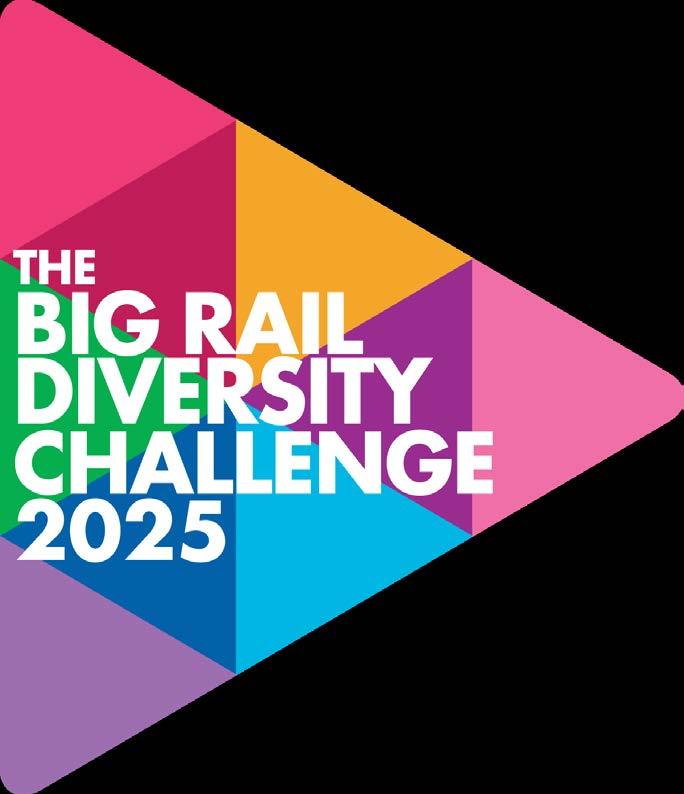
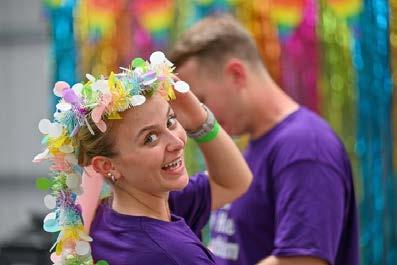
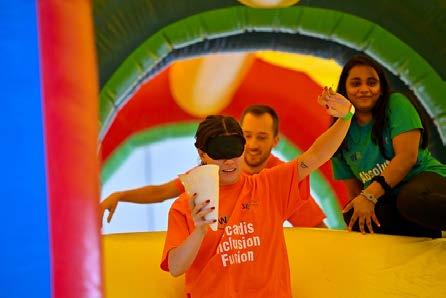
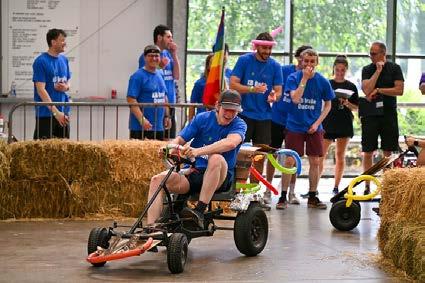
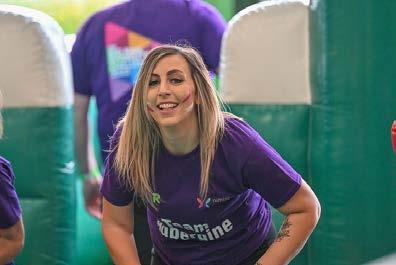
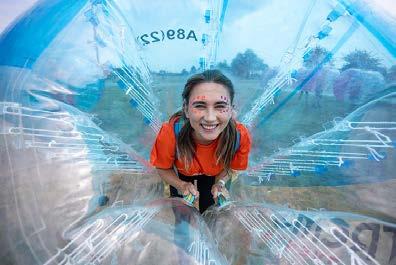
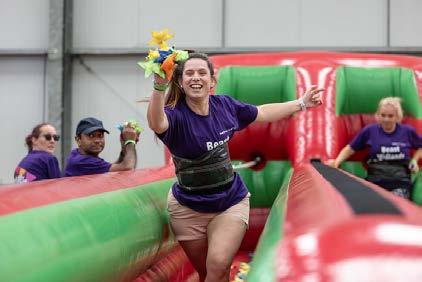


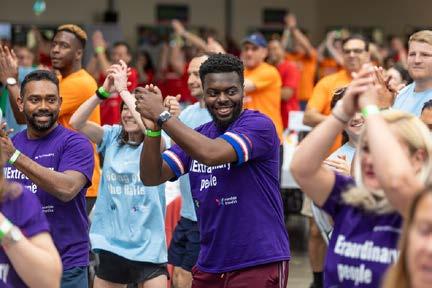
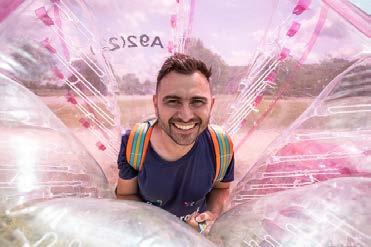
WEDNESDAY
The Big Rail Diversity Challenge is back for its tenth year! Suitable for all abilities, the event provides participants with the opportunity to network, team build and fundraise, whilst completing a series of fun - yet challenging - team activities, promoting Women in Rail’s key message:
Gender Diversity: Better for People, Better for Business, Better for Rail. Join the fun with over 600 industry personnel and promote the business benefits attained when engaging a gender diverse workforce.
Enter your team today: info@bigraildiversity.co.uk | 01780 432930
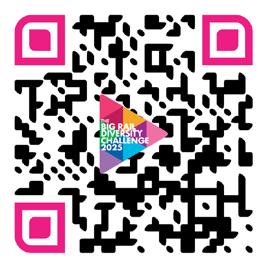

Brought to the industry by:
